Rechercher dans ce blog
Thursday, January 31, 2019
Hit by Sanctions, Asia's Iran Crude Oil Imports Drop to 3-Year Low in 2018
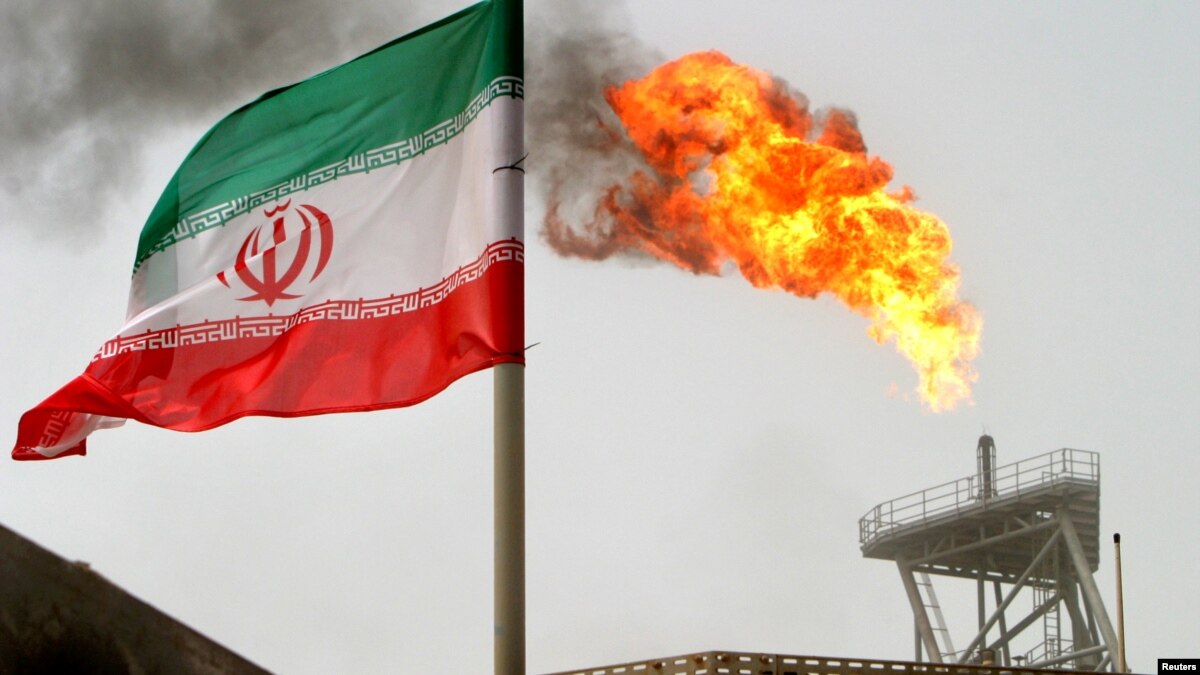
Iranian crude oil imports by Asia's top four buyers dropped to the lowest volume in three years in 2018 amid U.S. sanctions on Tehran, but China and India stepped up imports in December after getting waivers from Washington.
Asia's top four buyers of Iranian crude — China, India, Japan and South Korea — imported a total 1.31 million barrels per day (bpd) in 2018, down 21 percent from the previous year, data from the countries showed.
That was the lowest since about 1 million bpd in 2015, when a previous round of sanctions on Iran led to a sharp drop in Asian imports, Reuters data showed.
The United States reimposed sanctions on Iran's oil exports last November as it wants to negotiate a new nuclear deal with the country. U.S. officials have said they intend to reduce the Islamic Republic's oil exports to zero.
On a monthly basis, Asia's imports from Iran rebounded to a three-month high of 761,593 bpd in December as China and India stepped up purchases after Washington granted eight countries waivers from the Iranian sanctions for 180 days from the start of November.
"We expect Iranian exports to Asia to remain stable at around 800,000 barrels per day until May, when the waivers expire," said Energy Aspects analyst Riccardo Fabiani.
In December, China's imports climbed above 500,000 bpd for the first time in three months, while India's imports rose above 302,000 bpd.
Japan and South Korea did not import any Iranian crude that month because they were still sorting out payment and shipping issues, but the countries have resumed oil lifting from Iran this month.
During the 180-day period, China can import up to 360,000 bpd of Iranian oil, while India's imports are restricted to 300,000 bpd. South Korea can import up to 200,000 bpd of Iranian condensate.
"After May, it will all depend on the U.S. administration's decisions, which at the moment remain completely obscure. On balance, they are likely to extend the current waivers, although rumors are that there could be a significant cut in waivered volumes," Fabiani said.
As a precaution, Indian Oil Corp, the country's top refiner, is looking for an annual deal to buy U.S. crude as it seeks to broaden its oil purchasing options, its chairman said Wednesday.
Sultan Abdullah Installed as Malaysia's New King
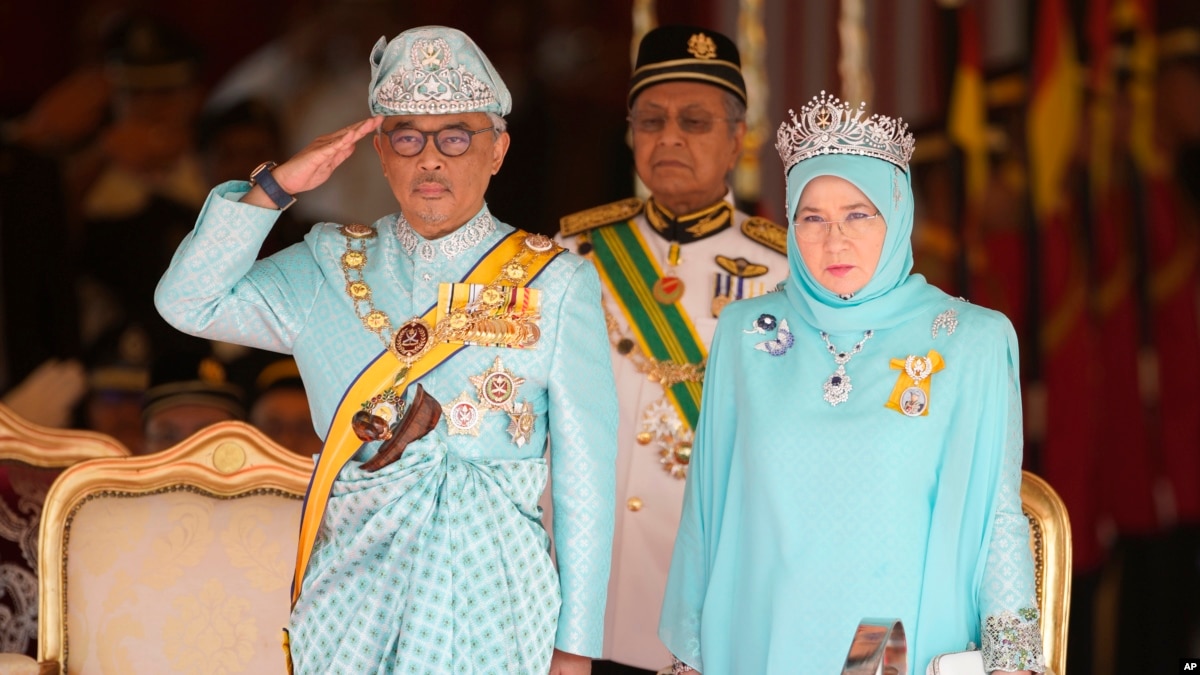
Malaysia's new king formally assumed the throne during a coronation ceremony Thursday in the southeast Asian country.
Sultan Abdullah Sultan Ahmad Shah took the oath of office as the country's 16th king during a televised ceremony at the national palace in Kuala Lumpur. Prime Minister Mahathir Mohamad was among the dignitaries in attendance.
The 59-year-old Sultan Abdullah, the ceremonial ruler of central Pahang state, succeeds Sultan Muhammad V of northeast Kelantan state, who abruptly resigned on January 6 after barely two years on the throne. His abdication came just weeks after he went on medical leave, followed by rumors that he had married a young Russian beauty queen. Sultan Muhammad's abdication was the first in the majority Muslim nation since gaining independence from Britain in 1957.
Malaysia's constitutional monarchy is rotated every five years between the royal leaders of the country's nine states.
The British-educated Sultan Abdullah is an avid sports enthusiast who is a member of the world football governing body FIFA and president of the Asian Hockey Federation.
Slowing Economy Hangs Over Chinese New Year Holiday
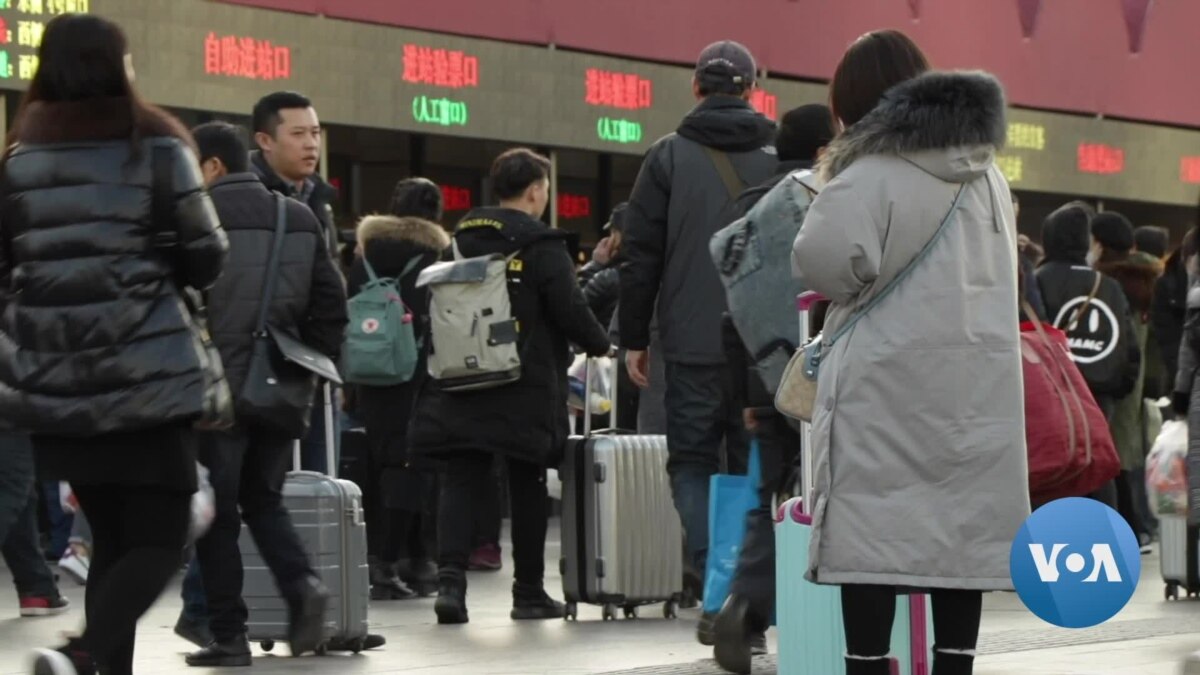
A slowing economy and talk of layoffs are adding to uncertainties for many in China as they head home for the Lunar New Year Holiday. Some employers are warning of "tough times" and talking about "surviving" as economic growth slows. All of this comes as the weight of the US-China trade dispute looms in the background. VOA’s Bill Ide has more from Beijing.
Read More Slowing Economy Hangs Over Chinese New Year Holiday : http://bit.ly/2CYhWo2Trump to Meet with China's Chief Trade Negotiator
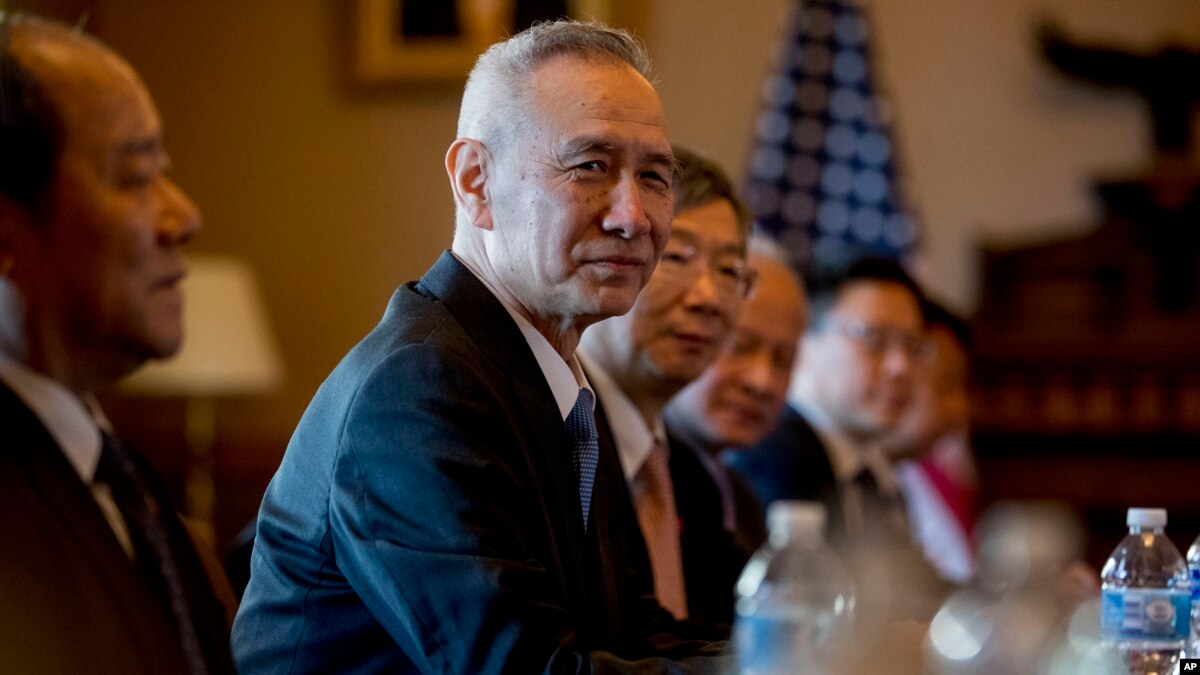
U.S. President Donald Trump will meet with Chinese Vice Premier Liu He at the White House Thursday, the last day of a second round of negotiations aimed at resolving the ongoing trade war between the economic superpowers.
Writing on Twitter Thursday morning, Trump said meetings "are going well with good intent and spirit on both sides." He added that "No final deal will be made until my friend President Xi, and I, meet in the near future to discuss and agree on some of the long standing and more difficult points."
Liu He, China's chief trade negotiator, met Wednesday with U.S. negotiators led by Trade Representative Robert Lighthizer at the Executive Office building next to the White House to continue discussions over Washington's long-standing complaints that Beijing forces U.S. companies to transfer their technology advances to Chinese firms and that it limits access to China's vast market.
The talks were threatened to be overshadowed by Monday's indictment by U.S. prosecutors of Meng Wanzhou, the chief financial officer of Chinese telecom giant Huawei Technologies.
The indictment alleges Meng, Huawei and the company's affiliates conspired to violate U.S. sanctions on Iran and deceived financial institutions and the U.S. government of their activities. China is angered over Meng's arrest in Vancouver by Canadian authorities on December 1 for extradition to the United States.
The trade talks are the result of an agreement last month between President Trump and Chinese President Xi Jinping to stop the tit-for-tat tariff conflict between the two countries for 90 days starting on New Year's Day.
The Trump administration has imposed punitive tariffs on $250 billion worth of Chinese imports to compel Beijing to change its trading practices, prompting Beijing to retaliate with its own tariff increases on $110 billion of U.S. exports.
If a deal is not reached by March 2, U.S. tariffs will rise from 10 percent to 25 percent.
Wednesday, January 30, 2019
Japan's Nikkei: Ghosn Says Arrest Due to Plot Within Nissan
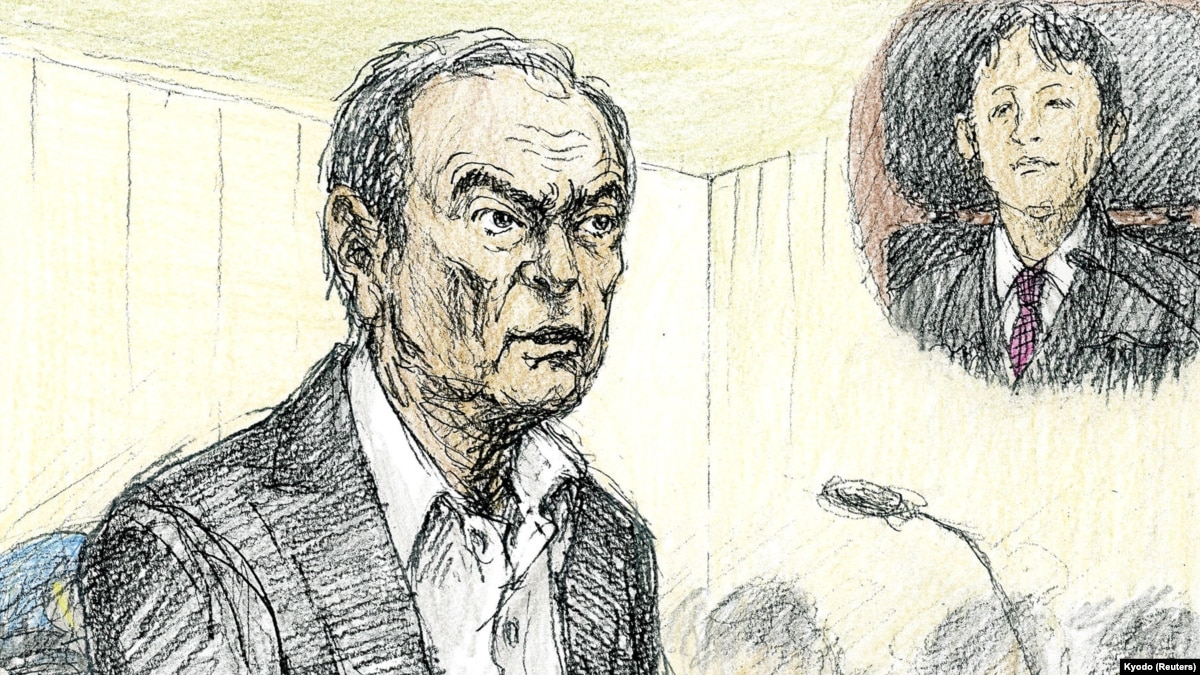
Nissan’s former chairman Carlos Ghosn, in his first interview since his arrest in November, blamed fellow executives opposed to forging closer ties with the automaker’s French alliance partner Renault for scheming against him, the Japanese newspaper Nikkei reported Wednesday.
The financial daily said it spoke with Ghosn for 20 minutes earlier in the day at the Tokyo Detention Center, where the 64-year-old star executive has been held since Nov. 19.
Earlier, Ghosn only was allowed visits by his lawyers and embassy officials.
Prosecutors have charged Ghosn with falsifying financial reports in under-reporting his compensation. He has also been indicted on charges of breach of trust related to his handling of investment losses and to payments made to a Saudi businessman.
In the interview, Ghosn reiterated that he is innocent and said others in the company schemed to force him out with a “plot and treason.”
“People translated strong leadership to (mean) dictator, to distort reality,” he told the Nikkei. It was for the “purpose of getting rid of me,” he was quoted as saying.
Nissan Motor Co. defended itself, saying prosecutors took action following an internal investigation set off by whistleblowers in the company.
“The sole cause of this chain of events is the misconduct led by Ghosn and Kelly,” company spokesman Nicholas Maxfield said. He was referring to Greg Kelly, another executive who has been charged with collaborating with Ghosn in underreporting his compensation. Kelly was released on bail last month and remains in Tokyo.
French government spokesman Benjamin Griveaux declined to comment when asked about Ghosn’s interview.
Authorities have rejected Ghosn’s requests for bail, saying he might tamper with evidence or possibly flee.
Ghosn told the Nikkei he had no intention of fleeing and wants to defend himself in court. But he questioned why he could not gain release on bail.
“I don’t understand why I am still being detained,” he was quoted as saying, adding he could not tamper with evidence because “All the evidence is with Nissan.”
The newspaper said Ghosn did not appear tired or flustered and when asked about his health, he said he was “doing fine.”
“In life there are ups and downs,” the newspaper quoted him as saying.
Renault SA owns 43 percent of Nissan. It sent Ghosn to Japan in 1999 to help lead the Japanese automaker’s turnaround from near bankruptcy. Ghosn said he had discussed a “plan to integrate” Nissan with Renault and their smaller alliance partner Mitsubishi Motors Corp. with Nissan’s CEO, Hiroto Saikawa, in September.
The plan was to bring Nissan, Renault and Mitsubishi Motors closer together and ensure they had “autonomy under one holding company,” he told the newspaper.
Nissan dismissed Ghosn as chairman shortly after his arrest. He was also dismissed as chairman of Mitsubishi. Earlier this month, he resigned as chairman and CEO of Renault and was replaced by Jean-Donimique Senard, the former chairman of Michelin.
Ghosn refuted various allegations against him, saying most of the alleged violations were approved by Nissan’s legal department or other senior executives.
He also denied any wrongdoing in buying expensive homes in Brazil and Lebanon, saying he needed a safe place to work and meet with people. The homes were no secret and if they had been a problem, he should have been consulted, Ghosn said.
Papuans Get Independence Petition to UN Despite Obstacles
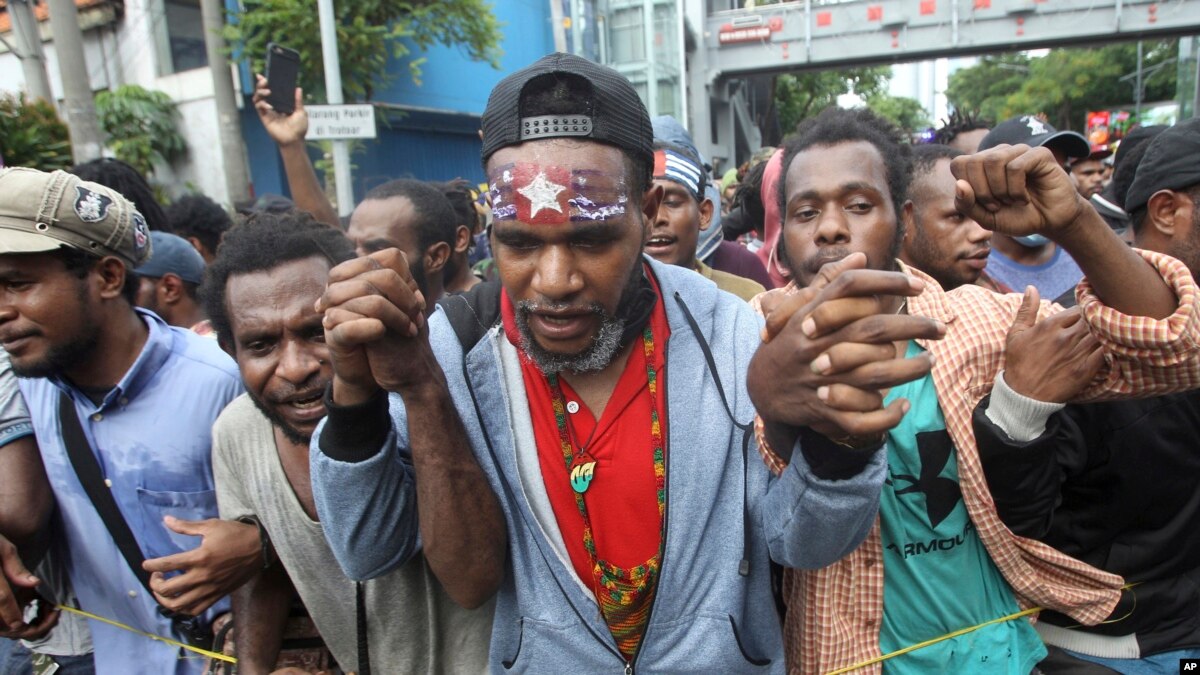
Activists in Indonesia’s mountainous jungle-clad Papua region risked imprisonment to collect 1.8 million signatures for a petition calling for self-determination but had a final dilemma: They were blocked from presenting it to the intended recipient, the United Nations.
An attempt to present the petition in 2017 to the U.N. committee responsible for monitoring the progress of colonized territories toward independence was rebuffed. The chairman of the committee said it couldn’t be accepted because Papua was not part of its mandate.
Highlighting the risks of the endeavor, an activist promoting the petition was arrested by Indonesian authorities in 2017 and sentenced the following year to 10 months in prison. He was arrested again this month along with several others who face treason charges.
Last week they succeeded, aided by the diplomatic equivalent of a wink and a nod from the tiny Pacific island nation of Vanuatu, which has been championing the Papuan cause.
Vanuatu officials had a scheduled meeting last Friday in Geneva with U.N. High Commissioner for Human Rights Michelle Bachelet. Among them was an exiled Papuan leader, Benny Wenda, who presented the voluminous petition to Bachelet.
“During this meeting, one member of the Vanuatu delegation, Mr. Benny Wenda, presented the high commissioner with a petition. This was not actually a meeting arranged with Mr. Wenda for that purpose,” said Ravina Shamdasani, deputy spokeswoman at the U.N. Human Rights Office.
Bachelet “was not aware” in advance, she said.
The United Liberation Movement for West Papua sent The Associated Press a photo of Wenda passing the petition to a smiling Bachelet.
Indonesia reacted angrily, accusing Vanuatu of “taking manipulative steps through the infiltration of Benny Wenda into the Vanuatu delegation.”
An insurgency has simmered in Papua since the early 1960s when Indonesia annexed the region, which had remained under Dutch control following Indonesia’s 1945 declaration of independence from the Netherlands. Last month, rebels killed 19 people working on a construction site for a trans-Papua highway in the deadliest attack in years. The Indonesian government denies 20 Papuans were killed in reprisal security operations.
The government says the territory is rightfully its under international law because it was part of the Dutch East Indies empire that is the basis for Indonesia’s modern borders.
But Papuans, culturally and ethnically distinct from the rest of Indonesia, say they were denied the right to decide their own future. Indonesian control was formalized in 1969 with a U.N.-supervised referendum in which little more than 1,000 Papuans were allowed to vote in an atmosphere of heavy intimidation.
Today the region is divided administratively into two provinces, Papua and West Papua, but supporters of independence call the entire region, which makes up the western half of New Guinea, West Papua.
The petition makes several demands of the U.N., including calling on it to review its involvement in the “unlawful annexation” of Papua, to appoint a special representative to investigate the human rights situation, to reinstate Papua on the decolonization committee’s agenda and to conduct an internationally supervised referendum on self-determination.
“Indonesia’s fake referendum included less than 0.2 percent of the population in 1969. The West Papuan People’s Petition of 2017 has 70 percent of the population,” Wenda, who is head of the United Liberation Movement for West Papua, said in a statement.
“Indonesia’s entire claim to West Papua rests on what happened in 1969. That claim is destroyed now,” he said.
He said he and others are “working day and night” to bring the petition to the U.N. General Assembly.
Indonesia’s mission to the U.N. said Vanuatu had “deliberately deceived” Bachelet. It said Indonesia “would never retreat to defend and protect” its territorial sovereignty.
The U.N. reiterated previous statements it has made about Papua. Indonesia in February last year agreed that a U.N. rights delegation could visit Papua, to which Jakarta tightly controls access, but no visit has taken place.
Shamdasani said Bachelet informed the Vanuatu delegation that the U.N. Human Rights Office “has been engaging with the Indonesian authorities on the issue of Papua, including the prevailing human rights situation, and has requested access to Papua.”
Read More Papuans Get Independence Petition to UN Despite Obstacles : http://bit.ly/2SlmijaUS, China Begin Second Round of Trade, Economic Talks
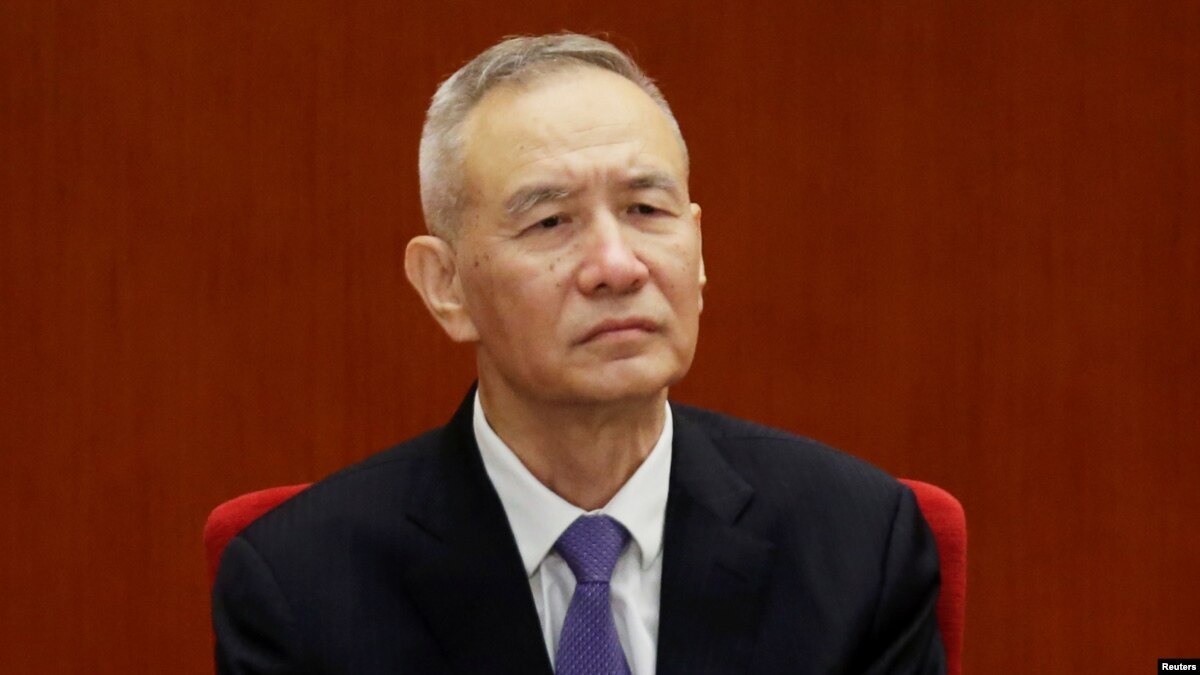
Negotiators from China and the United States will meet in Washington Wednesday to begin a second round of negotiations aimed at resolving the ongoing trade war between the economic superpowers.
Chinese Vice Premier Liu He and U.S. Trade Representative Robert Lighthizer will lead their respective delegations in two days of discussions over Washington's long-standing complaints that Beijing forces U.S. companies to transfer their technology advances to Chinese firms and that it limits access to China's vast market.
But Monday's indictment by U.S. prosecutors of Meng Wanzhou, the chief financial officer of Chinese telecom giant Huawei Technologies, threatens to overshadow the new round of talks.
The indictment alleges Meng, Huawei and the company's affiliates conspired to violate U.S. sanctions on Iran and deceived financial institutions and the U.S. government of their activities. China is angered over Meng's arrest in Vancouver by Canadian authorities on December 1
for extradition to the United States.
The trade talks are the result of an agreement last month between U.S. President Donald Trump and Chinese President Xi Jinping to stop the tit-for-tat tariff conflict between the two countries for 90 days starting on New Year's Day.
The Trump administration has imposed punitive tariffs on $250 billion worth of Chinese imports to compel Beijing to changes its trading practices, prompting Beijing to retaliate with its own tariff increases on $110 billion of U.S. exports.
If a deal is not reached by March 2, U.S tariffs will rise from 10 percent to 25 percent.
Myanmar LGBT Pride Out in Force, But Laws Lag Behind
[unable to retrieve full-text content]
This past weekend, pride week kicked off in full force in Myanmar’s largest city, Yangon. Read More Myanmar LGBT Pride Out in Force, But Laws Lag Behind : http://bit.ly/2WwKcXRRising-Star Philippine Economy Slips, 2019 Seen as Pivotal
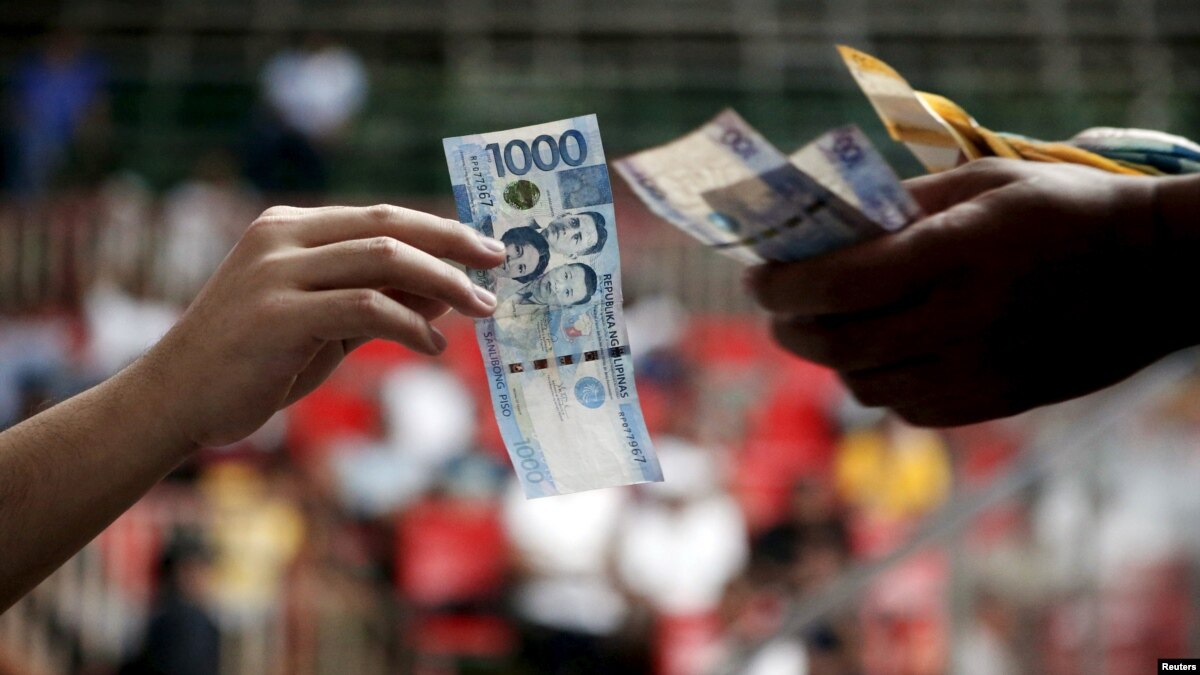
The Philippines ranked among Asia’s 10 fastest growing economies in 2017. Consumer power, remittances from overseas workers and an influx of call centers had given it that status, raising hopes for easing rampant poverty. Then GDP expansion wobbled in 2018 because of rising prices and lack of new direct investment.
Now state spending on new infrastructure and local tourism are expected to decide whether the Philippines can get back on track this year.
The Philippine economy grew 6.2 percent last year, down from 6.7 percent in 2017 and 6.9 percent a year earlier. Inflation dented consumption in late 2018, while factory investors stayed away for lack of infrastructure compared to what’s available elsewhere in Asia. Storm damage to crops, another economic backbone, and the six-month shutdown of the tourist hotspot Boracay Island ate away further at growth.
“I think it’s a combination of factors,” said Eduardo Araral, associate professor at the National University of Singapore’s public policy school. “One would be inflation, because that would slow down consumption. Infrastructure is always a constraint. The economy is growing, but the bottlenecks are not yet fixed.”
Slumps in farming, consumption
A spike in consumer prices in the Philippines in late 2018 angered many, testing the popularity of President Rodrigo Duterte in his third year in office. August inflation set a nine-year record at 6.4 percent, then the highest in Southeast Asia.
World oil price hikes were felt at the pump, while reports of rice scarcity raised prices in some parts of the country. More than 70 percent of the $313 billion Philippine economy comes from consumption, and people – especially the poor – mind their spending when prices are up.
The GDP struggled to grow also after deadly typhoon Mangkhut caused $509 million in agricultural damage in September and three months later tropical storm Usman caused another $19 million in farm losses.
The Western Pacific archipelago gets typhoons every year but still lacks infrastructure to withstand them, said Song Seng Wun, regional economist with the private banking unit of CIMB in Singapore.
Tourism was robust overall last year, but the closure of Boracay Island hurt the country’s prime tourism spot. Duterte declared a state of calamity from April through October to clean up the island, which had brought in more than $1 billion in tourism receipts in 2017.
Quest for investors
But the lack of capital investment weighs particularly hard on economic policymakers this year. The country, known for cheap, skilled labor, is still missing the ports, railways and power generation capacity that business people expect before opening shop. Investment would create jobs, in turn easing poverty.
“In terms of the whole ease of doing business, the Philippines ranks very low, but one of those reasons is poor infrastructure,” said Rajiv Biswas, Asia-Pacific chief economist at IHS Markit.
To attract more capital, the government is building $171 billion worth of infrastructure by 2022, one of Duterte’s priorities in office. By the same year, the government aims to cut poverty from 22 percent to 14 percent of the population.
Officials are sighting for this year new roads and a railway system on the impoverished island of Mindanao, flood control work around Manila and the first phase of a Metro Manila subway project, Budget and Management Secretary Benjamin Diokno said on his department’s website.
Progress on infrastructure would also show that the Philippines can overcome political fights that include open spats between Duterte and his detractors in Congress or the mass media, economists believe.
“Investors like clarity,” Song said. “So when you have leaders or opinion makers who can be very abrasive as well, would you want to be putting in millions of millions of investments given that environment?”
The budget department flagged manufacturing growth as an “area of concern.” In a statement on the 2018 economy, the department urged more transport infrastructure and asked Congress to amend the Foreign Investments Act, which deters foreign investors by limiting how much they can invest in certain local industries.
Bright spots
Some analysts already point to bright spots in the 2019 economy. Tourism on the heavily populated island Cebu stands to help real estate there, Biswas said, while tourism and investment are booming near the former U.S. airbase at Clark Field.
The Asian Development Bank expects 6.7 percent growth this year.
“If you look at it from a perspective that the Philippines is actually working on its infrastructure to attract investors, you have a government commitment to keep on spending, and you have a country whose growth is actually moving away from the key cities but into other areas, that will support above 6 percent growth,” said Jonathan Ravelas, chief market strategist with Banco de Oro UniBank in Metro Manila.
Read More Rising-Star Philippine Economy Slips, 2019 Seen as Pivotal : http://bit.ly/2DJvFkoSouth Korea’s Difficult Road Ahead to Combat Fine Dust
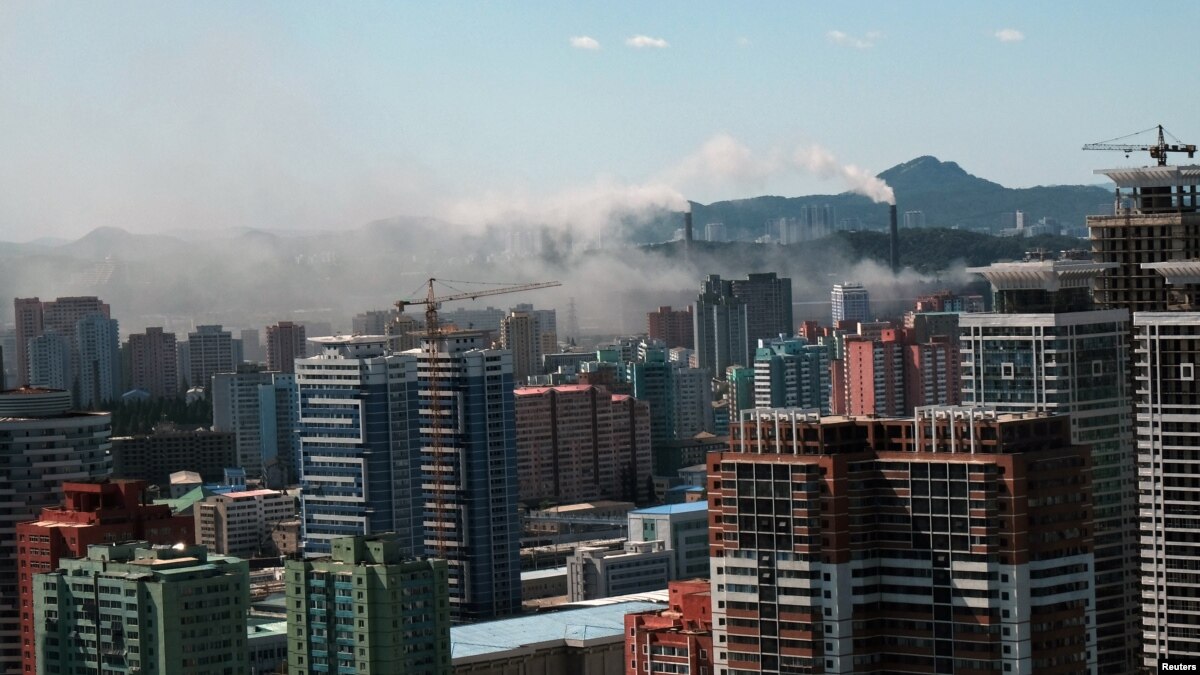
South Korea’s initial attempt at countermeasures to end the country’s current fine dust problem failed this week. Officials had sought to create artificial rain to address the current heavy air pollution many in Seoul blame on neighboring China. It’s an issue becoming more and more critical for residents.
Kim Byung-gon, a Professor at Gangneung-Wonju National University Department of Atmospheric and Environmental Sciences told VOA that while fine dust particles from China are part of the problem, it isn’t the only thing causing South Korea’s bad air.
“Fine dust occurs when pollutants emitted from China and internal (South Korean) pollutants stay in the air,” said Kim, who also noted that the exact cause of Seoul’s pollution problem has yet to be fully identified.
Dong Jong-in, a professor in the Department of Atmospheric and Environmental Sciences at the University of Seoul, said that while domestic factors do affect the overall particulate matter in the air, “fine dust that has flowed from the outside [the country] in the upper air stream is the key factor.”
As a result of continued concern by residents about the on-going increase in bad air quality days, South Korean President Moon Jae-in has announced that resolving the country’s fine dust problem will be one of the policy tasks his administration will undertake.
Choking on air
For three consecutive days in mid-January, the South Korean government issued alerts to citizens, warning of high levels of micro-dust in the air and urging them to stay inside, or if they had to be outside, to wear masks and keep exposure to a minimum.
During these days, thick, fine dust blanketed most of the country. The pollution was not only visible to the naked eye, but could be felt in the back of one’s throat according to one resident who spoke to South Korea’s Yonhap News.
"The air is so murky and my throat hurts that I even feel depressed. It's as if there is a really thick fog,” the individual said.
Dong Jong-in said the air over the Korean peninsula had been quite dusty for some time. South Korean authorities had monitored overall dust levels and saw some improvement between 2012 and 2013, but since then and the inclusion of PM2.5 particles (ultrafine dust particles that are considered hazardous) in 2015 there has been a marked increase in pollution levels.
“As coal fuel use increases in China, patterns of ultrafine dust rise when west-winds blow. In the past, this was only a problem in winter, but the dusty season has widened to the late autumn and spring,” said Dong.
This is a concern, said Kim Byung-gon, because there are risks that come with increased exposure. “[World Health Organization] studies have indicated that it (ultrafine dust) acts as a primary carcinogen.”
Dong added that the “fine dust affects not only the respiratory system, but also blood vessels, heart, is implicated with brain disease, and dementia… it will also harm children and pregnant women.”
Resolving the problem
Last week, a plane flew into the airspace west of Seoul carrying silver iodide, a chemical that helps water droplets form in clouds. Authorities say it released 24 bursts of the chemical above clouds in hopes of inducing rain.
The Korea Meteorological Administration (KMA) said the initial results were “disappointing.”
While the KMA did detect a weak, misty rain for several minutes, "there was no observation of significant precipitation.”
"Aside from its success or failure, the test was an opportunity to accumulate the necessary technology for faster commercialization of cloud seeding," the KMA added.
The agency is expected to release a full report next month and to carry out 14 more tests this year in hopes of perfecting the technology by 2024.
Kim Byung-gon said the government’s plan does have some merit, since several countries around the globe employ such tactics.
However, “Artificial rainfall itself is difficult,” Kim said, “a sufficient amount of rain should be falling to wash away the dust… I do not think it will be easy.”
He added that utilizing cleaner fuel, reducing automobile emission pollutants, and addressing factory pollutants must also be part of any solution to the problem at hand.
Lee Ju-Hyun contributed to this report.
Read More South Korea’s Difficult Road Ahead to Combat Fine Dust : http://bit.ly/2RuD1fqTwo People Killed in Grenade Attack on Mosque in Southern Philippines
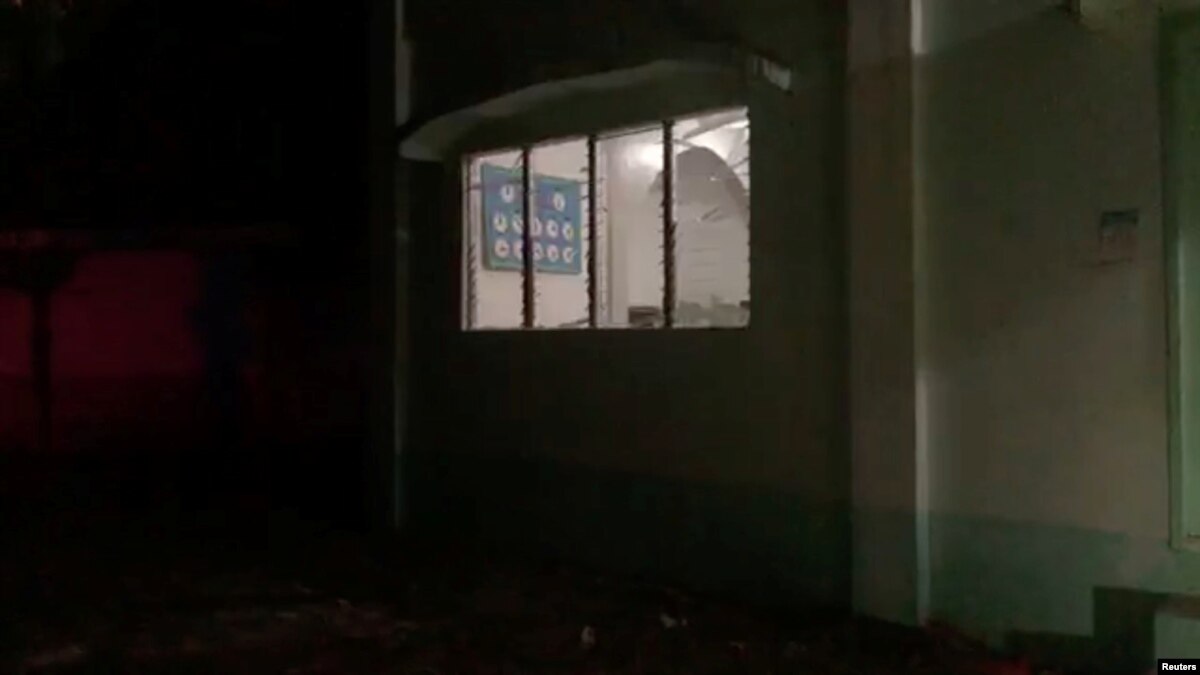
Two people are dead after a grenade attack on a mosque in the southern Philippines Wednesday, the second deadly attack on a religious site in the region after a landmark referendum approving an autonomous Muslim region.
Police say four other people were killed in the early morning bombing in Zamboanga City, which was denounced as "inhumane" by the local Ulama Council.
Authorities say they do not believe it was in retaliation for Sunday's twin bombings of a Catholic cathedral on Jolo island that left 21 people dead. The Islamic State terrorist group has claimed responsibility for the Jolo attack, but local authorities believe it was carried out by the militant Abu Sayyaf group. The group, which has pledged allegiance to Islamic State, has carried out hundreds of bombing attacks, kidnappings and beheadings in the region for decades.
The successful January 21 referendum grants the Muslim-dominated southern Philippines autonomy in the predominantly Catholic nation. The referendum establishing the new Bangsomora region was the result of negotiations between the government and Muslim separatists who have carried out a bloody decades-long rebellion.
The referendum was rejected by voters in Sulu province, which is home to Abu Sayyaf and other hardline Islamic factions; despite the rejection, Sulu will still be part of the new entity.
Tuesday, January 29, 2019
North Korea's Push for More Coal Clouds Environmental Future
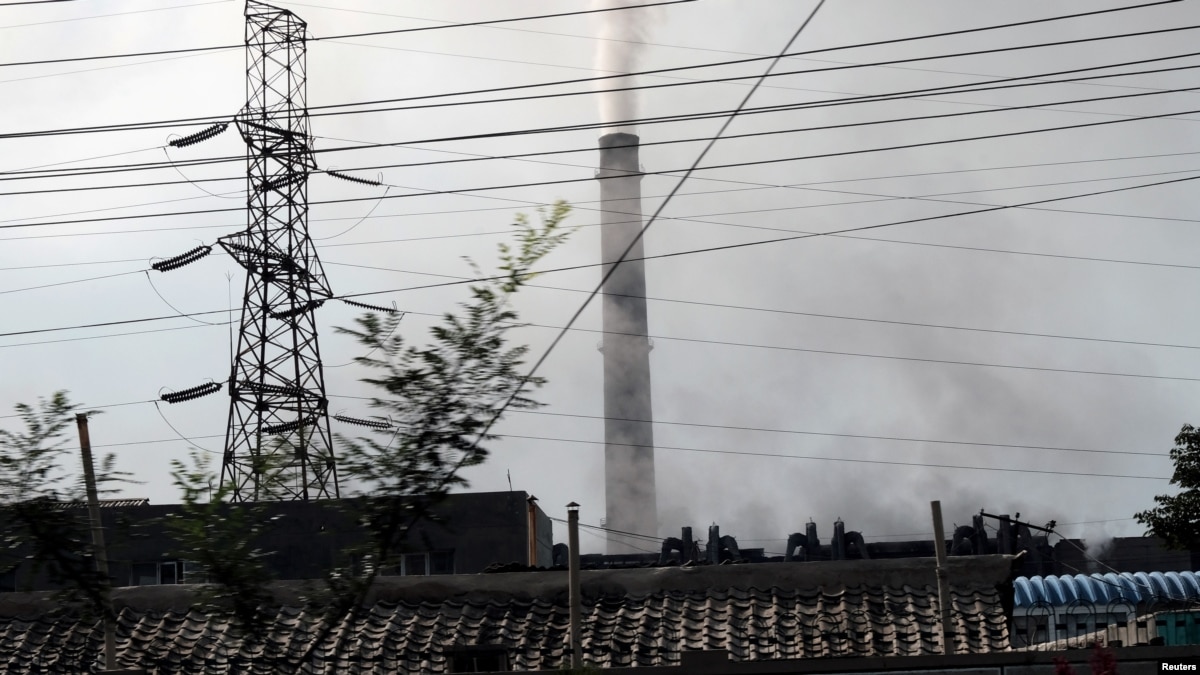
North Korean leader Kim Jong Un sees coal as a key way to boost the economy, but burning more coal may worsen pollution in a country already choking on some of the world's most toxic air.
With the country staggering under the weight of international sanctions over its nuclear weapons program and human rights violations, defectors and analysts say Pyongyang has increased the domestic use of coal, which is blocked for export.
Seven coal power plants and one oil-fired plant produce nearly 50 percent of North Korea's electricity, with the rest coming from hydro power, according to South Korean government data. For households, coal is also a key fuel source for cooking and heating.
But an increased reliance, which Kim announced in his New Year address, may have deadly implications.
Per capita, North Korea's air pollution mortality rate was the world's highest at 238.4 deaths per 100,000 population as of 2012, a 2017 report from the World Health Organization (WHO) showed. That was 10 times higher than the rate in South Korea and higher than those of China and India, where smog often envelops major cities.
North Korea has acknowledged the correlation between coal and polluted air, but said it has had limited access to cleaner options.
"A combination of limited capital investment in infrastructure, limited access to efficient and low emission technologies ... and reliance on energy produced from coal in low efficiency thermal power plants has impacted air quality in urban and industrial areas," North Korea's 2012 report on environment and climate change outlook submitted to United Nations Environment Program (UNEP) said.
According to the report, coal is the main fuel used by homes in North Korean cities. In rural areas, wood is the main source, while coal comes in second.
Many rural North Koreans say they're aware of the pollution, but have more pressing problems.
"From the moment we woke up, we had to think about how much rice was left in our jar and how much firewood we had," said Ji Cheol-ho, a North Korean defector who lived in a coal mine town in North Hamgyong province before fleeing to the South in 2007.
"We don't die right away from eating dust, but we do if we don't eat food," said Ji, now an official at NAUH, a human rights activist group, who regularly talks to sources inside the North.
Hard to monitor
Analysts say North Korea has typically reserved its higher-quality coal for export. Using it domestically instead would have at least a small impact on minimizing additional pollution, experts say.
"Using good quality of coal would reduce emissions," said Kim Yong-pyo, professor of chemical engineering & material science at Ewha Womans University in Seoul.
But North Korean facilities lack sufficient filtering, so using more coal of any kind would likely lead to more carbon dioxide, sulfur dioxide and nitrogen oxide emissions, he said.
Reuters journalists in Pyongyang late last year observed thick smoke pouring from the stacks of several facilities, often covering parts of the capital in smog.
To raise public awareness about air pollution in 2017, North Korea's state television aired a special warning about it and provided tips such as wearing masks.
In 2003, North Korea set goals to address air pollution, and is working to upgrade older thermal power plants, according to reports the country submitted to UNEP and the United Nations Framework Convention on Climate Change.
But "limited technical and financial resources" prevented detailed monitoring of air quality, the report said, and it is not clear whether the North Korean government followed through on its recommendations.
Regional concern
Experts say a lack of reliable data make it difficult to gauge exactly how much damage Kim Jong Un's coal plan might do to the environment and air quality. But they agree it will have an impact outside his country's borders, especially in South Korea, Kim Yong-pyo said.
Air pollution harms and kills millions of people every year, especially in Asia, according to the WHO.
In South Korea, up to 20 percent of air pollutants are estimated to originate in the North, experts say.
In a 2017 survey by the state-funded Korea Institute for Health and Social Affairs, South Korean respondents said air pollution was their biggest concern, eclipsing even North Korea's nuclear threats.
Kim and South Korean President Moon Jae-in promised last year to restore the North's damaged forests in an effort to fight air pollution.
"Some air pollutants travel over to the South from the North. If forests are built well ... those could be reduced," South Korea's Forest Service minister Kim Jae-hyun, who visited Pyongyang last year to discuss the matter, told reporters in January.
Kim Soon-tae, a professor of environment and safety engineering at Ajou University, who has studied the impact of North Korean pollutants, said better data from the North is essential to devising air pollution policies in the South.
"North Korea's air quality is our homework to do, and we have to think about North Korean people's health as well," Kim said.
Read More North Korea's Push for More Coal Clouds Environmental Future : http://bit.ly/2sX4Um8US intel Chief: Russia, China Biggest Espionage, Cyber Threats
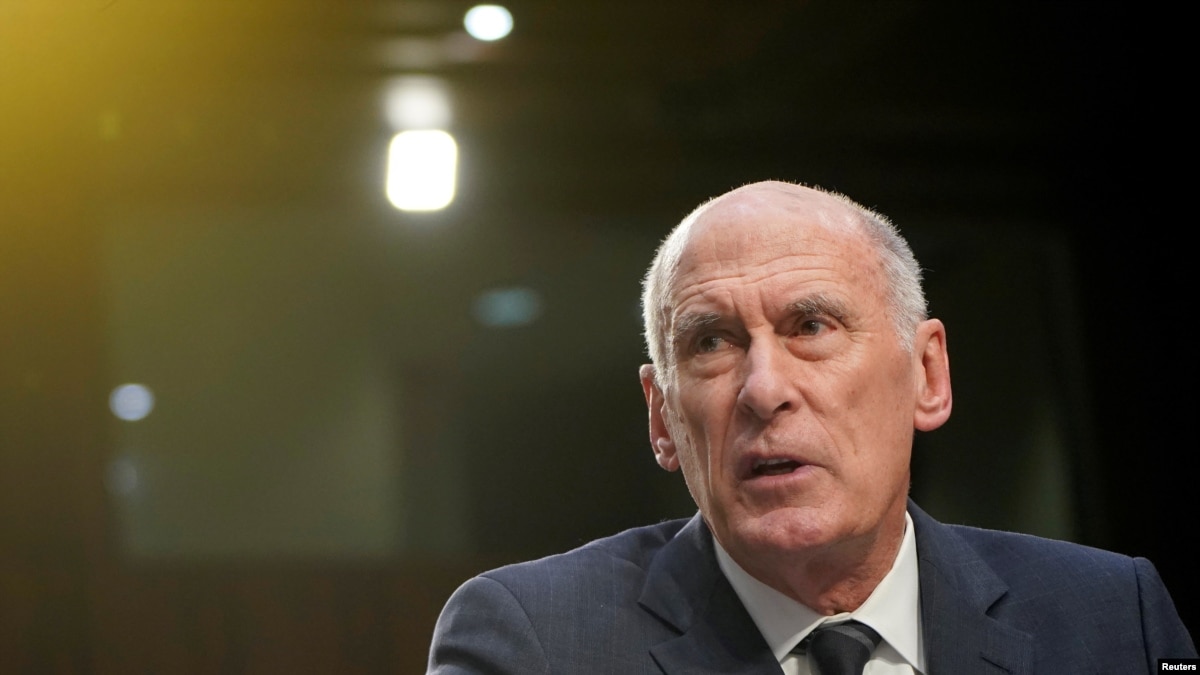
Russia and China pose the biggest espionage and cyber attack threats to the United States and are more aligned than they have been in decades, the leader of the U.S. intelligence community told U.S. senators on Tuesday.
While the two countries seek to expand their global reach, Director of National Intelligence Dan Coats said, some American allies are pulling away from Washington in reaction to changing U.S. policies on security and trade.
"China, Russia, Iran, and North Korea increasingly use cyber operations to threaten both minds and machines in an expanding number of ways - to steal information, to influence our citizens, or to disrupt critical infrastructure," Coats said.
"Moscow's relationship with Beijing is closer than it's been in many decades," Coats told the Senate Intelligence Committee's annual hearing on worldwide threats, where he testified with the director of the CIA, FBI and other top intelligence officials.
He also said some U.S. allies are seeking more independence, responding to their perceptions of changing policies on security and trade and "are becoming more open" to new partnerships. "The post-World War Two international system is coming under increasing strain amid continuing cyber and WMD proliferation threats, competition in space and regional conflicts," Coats said, using the acronym for weapons of mass destruction.
Election security
Coats also said U.S. adversaries likely are already looking to interfere in the 2020 U.S. election, refining their capabilities and adding new tactics.
He said Russia's social media efforts will continue to focus on aggravating social and racial tensions, undermining trust in authorities and criticizing politicians perceived to be anti-Russia.
Senator Mark Warner, the panel's top Democrat, said in his opening statement that he was particularly concerned about Russia's use of social media "to amplify divisions in our society and to influence our democratic processes" and the threat from China in the technology arena.
The United States on Monday announced criminal charges against China's Huawei Technologies Co Ltd, escalating a fight with the world's biggest telecommunications equipment maker and coming days before trade talks between Washington and Beijing.
"Especially concerning have been the efforts of big Chinese tech companies â€" which are beholden to the CCP (Chinese Communist Party) â€" to acquire sensitive technology, replicate it, and undermine the market share of U.S. firms with the help of the Chinese state," Warner said.
The U.S. Justice Department on Monday charged Huawei and its chief financial officer, Meng Wanzhou, with conspiring to violate U.S. sanctions on Iran by doing business with Tehran through a subsidiary it tried to hide and that was reported on by Reuters in 2012.
"China is going to be a major competitor of ours in every way that there is," said Republican Senator Jim Risch, an intelligence committee member who is also chairman of the Senate Foreign Relations Committee.
'French Spiderman' Arrested After Scaling Manila Skyscraper
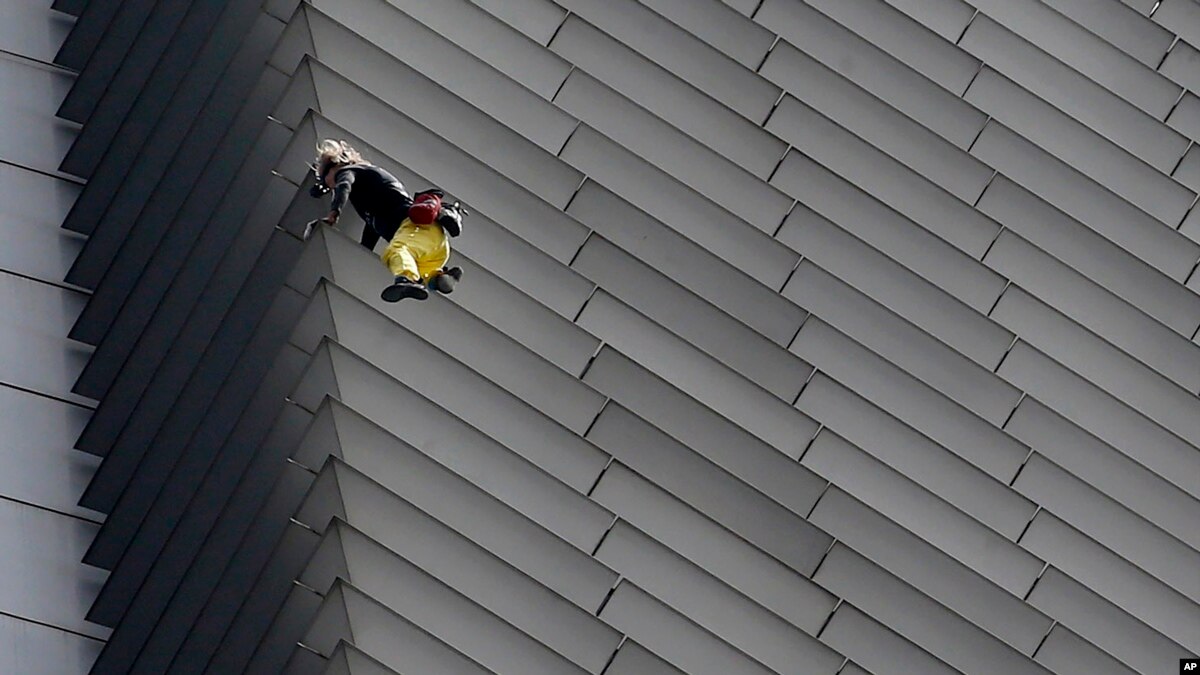
French urban freeclimber Alain Robert was arrested on Tuesday, police said, after he scaled one of Manila's tallest towers in his latest high-risk ascent.
The 56-year old adventurer dubbed the "French spiderman" climbed the 47-storey GT Tower without safety equipment, leaving watchers on the ground staring in amazement.
"This is my path, this is my way of living. It is as important to me as eating, sleeping. I need that. It keeps me alive," he told reporters after completing the climb.
Police were less enthusiastic about the stunt and took him into custody as soon as he reached the ground after the roughly two-hour climb up and down the building.
He is being held on a charge of public disturbance but will post bail on Wednesday, his lawyer Howard Calleja told AFP on Tuesday night.
Robert has scaled more than 100 structures without ropes or other safety equipment, setting a record for "most buildings climbed unassisted" according to Guinness World Records.
His successes include many of the world's tallest skyscrapers and iconic buildings, such as the Eiffel Tower, the Sydney Opera House, the Petronas Twin Towers in Kuala Lumpur and the Burj Khalifa in Dubai — where he used suction devices and a safety rope as it has no hand or footholds.
However, in June he was foiled when he attempted to ascend a Seoul skyscraper, getting more than halfway up the 123-storey Lotte World Tower before security forced him to abort.
Robert said he first intended to scale the GT Tower on Saturday but changed his mind when he saw building security men armed with guns, normal in the Philippines but not in most of the 70 countries where he said he had climbed.
"I'm just climbing a building. I'm not killing anybody. It's not a bank robbery," he said.
"I saw thousands of people inside the buildings. I did brighten their day. They will remember that their whole life."
Robert has suffered several severe falls while climbing and estimates his accidents have left him 66 percent disabled. He has been arrested numerous times for his exploits.
He said Tuesday he wanted to climb in Chile and Panama in the future.
Myanmar Parliament Approves Step Toward Charter Change
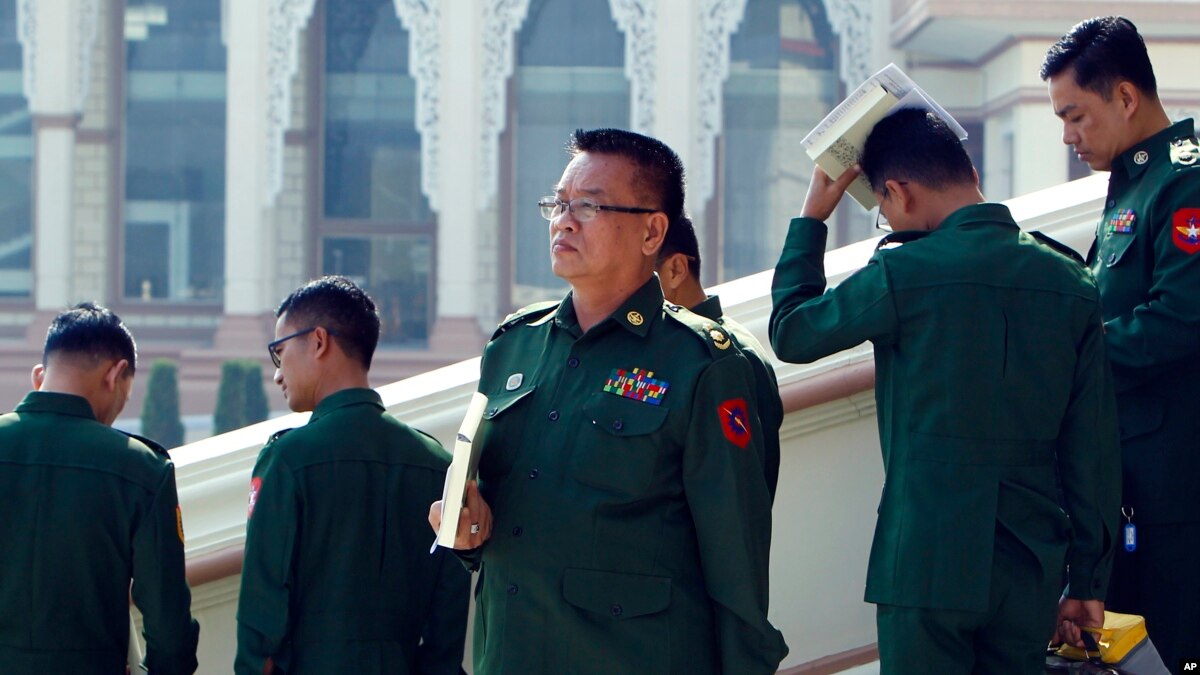
Myanmar's parliament voted Tuesday to create a committee to propose amendments to the country's military-enacted constitution, which grants the armed forces the power to block any change.
The proposal to form the committee was presented by a member of the ruling National League for Democracy party of leader Aung San Suu Kyi, which took power in 2016 after more than five decades of military or military-backed rule.
The 2008 constitution gives the military control of national security ministries and 25 percent of legislative seats, enough to prevent any constitutional changes, which require the support of more than 75 percent of lawmakers.
The committee proposal required a simple majority to pass. Military lawmakers boycotted the vote, saying it violated parliamentary procedures for changing the constitution. Brig. Gen. Maung Maung, one of the military representatives in parliament, said the objection was not against proposing changes, but rather against setting up a committee to do so.
With the high bar set for changing the constitution and no sign that the military wants to give up its considerable power, it was unclear if the move by Suu Kyi's ruling party was only symbolic, signaling its intentions ahead of the next general election in 2020.
Constitutional amendment was one of the campaign promises made by her party in 2015, along with rule by law and ending armed conflict with ethnic minority groups. The party circulated public petitions calling for amending the constitution that received millions of signatures.
Once in power, the National League for Democracy made an end run around one of the constitutional clauses it sought most to change. One article clearly aimed at Suu Kyi, the leader of the country's pro-democracy movement and long-time nemesis of the military, barred her from holding the president's office because she had a foreign husband, the late British scholar Michael Aris. Once in power, her party created the office of state counselor especially for Suu Kyi, granting it executive powers and making her effectively the head of government.
Foreign Journalists in China: Working Conditions Deteriorating
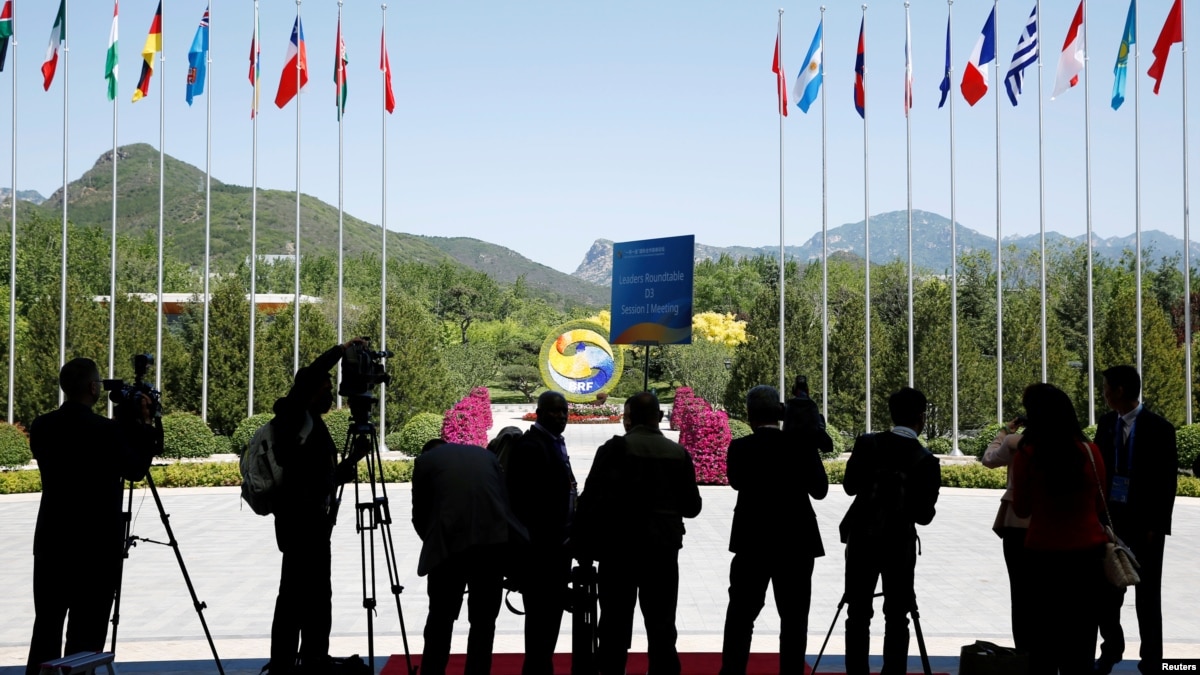
A new survey of foreign journalists based in China reveals that working conditions worsened in the Communist nation in 2018.
Nearly half of the 109 members of the Foreign Correspondents Club of China (FCCC) who responded to the survey said they were followed, while more than 90 percent were concerned about the security of their phones. Nearly a quarter of the respondents were aware that Chinese authorities were tracking them using public surveillance systems.
Many of the challenges facing foreign correspondents were in the western region of Xinjiang, where up to one million Uighurs and members of other ethnic Muslim groups are being held in detainment camps. The FCCC says 24 out of 27 respondents who traveled to the Xinjiang said they experienced interference while there, with 19 being asked or forced to delete their data.
Many of the journalists have also experienced delays in having their visas renewed, or having their visas renewed for only a few months, effectively forcing them to leave China.
A Foreign Ministry spokesman rejected the survey results, telling a regular news briefing the report "was not worth refuting" and not reflective of the views of all foreign correspondents in the country.
For Indonesian Millennials, Abstentions Are an Appealing Option
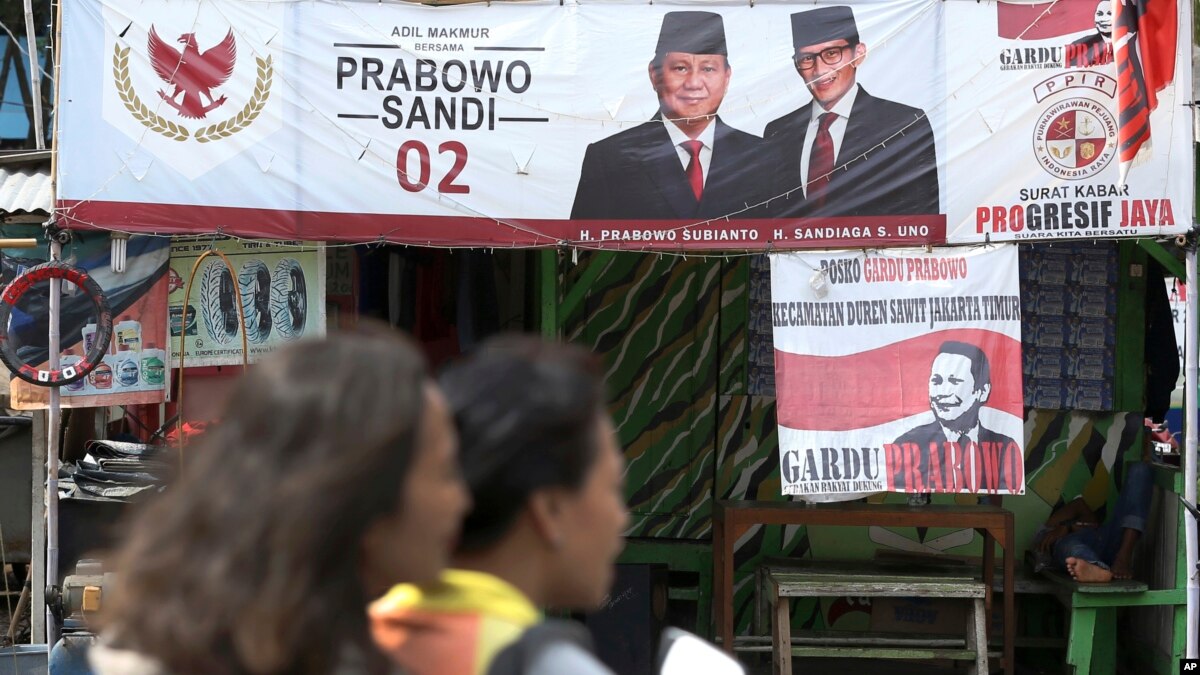
Two months ahead of the next Indonesian presidential election, signs of discontent are showing among the country’s youth and many are worried they may choose a growing option: non-voting.
Shortly after serving an almost two-year prison sentence for violating Indonesia’s blasphemy law, former Jakarta governor Basuki Tjahaja Purnama, widely known as Ahok, urged his supporters to vote in the Indonesian elections on April 17. “We need to vote for the political parties to erect the four pillars of the Indonesian state,” he wrote in a letter.
In an effort to quell disappointment by some of his supporters for the incumbent, President Joko Widodo, widely known as Jokowi, Ahok urged against golput — short for golongan putih, the Indonesian term for non-voting.
Golput can be categorized into active and passive non-voting, such as consciously not showing up to the polls, incorrectly casting the vote or punching the white space in the ballot, therefore disqualifying the vote.
“In the 2019 elections, the targeted turnout rate is 77.5 percent, which means that the golput trend isn’t rising,” Arief P.S., spokesman for Indonesia’s General Elections Commission (KPU), told VOA.
Historically, however, the rate of golput has risen. According to the findings by the organization The Partnership for Governance Reform and Association for Elections and Democracy (Perludem), 48.3 million voters abstained in the 2009 elections, rising to 58.9 million in the 2014 elections. The rate of golput rose from from 16 percent in 1999 to 30 percent in 2014—close to the predicted voting rate in this year’s elections.
Millennial votes
With the rise of the Indonesian Solidarity Party (PSI), whose campaign and brand revolve around tapping the millennial votes, young Indonesians have become a formidable voting bloc in this year’s elections.
“Whether they’re a big voting bloc or not, it’s hard to say since we don’t have the resources to make that data. But we can agree that millennials are a lot more critical and have better access,” Aqsa said. “I believe that golput will be an option for millennials.”
Experts believe that both the campaigns of Jokowi and his opponent, Prabowo Subianto, use pop culture references (Jokowi said "Winter is coming" from the TV show Game of Thrones a few months ago) and champion several policies, such as the nation’s high unemployment rate, that are believed to be targeted at young voters.
In an interview with Bloomberg, Subianto’s running mate, businessman Sandiaga Uno, said about 50 percent of millennials are pretty “disengaged” and “disenfranchised.”
Rivanlee Anandar, 25, a researcher at the Commission for Missing Persons and Victims of Violence, told VOA that he will come to the polls, but he will punch both ballots, therefore disqualifying his vote. “Why both? You can interpret it however you want, either I trust in both candidates or distrust them completely. It’s more the second option, especially on human rights issues,” he said.
Nabila Ernada, 22, expressed similar disappointment, but she told VOA that she will be voting in April. “I will vote because there’s an obligation. I don’t really believe that my vote is really making a difference towards the political scene in Indonesia,” she said before expressing her confusion over Indonesia’s “stagnant politics.”
Similar to Ernada, Moudy Alfiana, 23, will vote and she is less cagey about her reasons. “Many people believe that the candidates are the same, but if you look at their visions, there’s also differences,” she said, before adding that she does acknowledge that campaign promises are no more than just that—a promise. “Being surrounded by people who will abstain, I can understand where they’re coming from, though,” she said.
Old choice
Historically, Golput, which is not illegal, has always been an option in Indonesian politics, currently the third largest democracy in the world.
It is widely believed that the word golput entered the lexicon in 1971, when activists protested the elections in the New Order regime. The elections at that time weren’t democratic—Suharto, the authoritarian president, held the job from 1967 to 1998.
Similar to the Indonesian politics in the past, the discourse surrounding golput in 2019 has focused on the disillusionment for the two presidential candidates, Jokowi and the ex-military general Prabowo Subianto.
“Many things motivate voters to abstain. They may feel as if the elections won’t impact their lives or they disagree with the current political system, they may dislike the candidates or distrust the representative democratic system,” lawyer Alghiffari Aqsa and the former director at the Jakarta Legal Aid Institute, told VOA.
Aqsa also added that although people are more open to golput as an option, there is still stigma surrounding it.
“If we look at social media, there’s a lot of names that people like to call those who abstain, from bad citizens, criminals, pragmatists, egoists to edgy,” he said.
Read More For Indonesian Millennials, Abstentions Are an Appealing Option : http://bit.ly/2RXr9rkForeign Media Reporting Conditions in China Worsen, Group Says
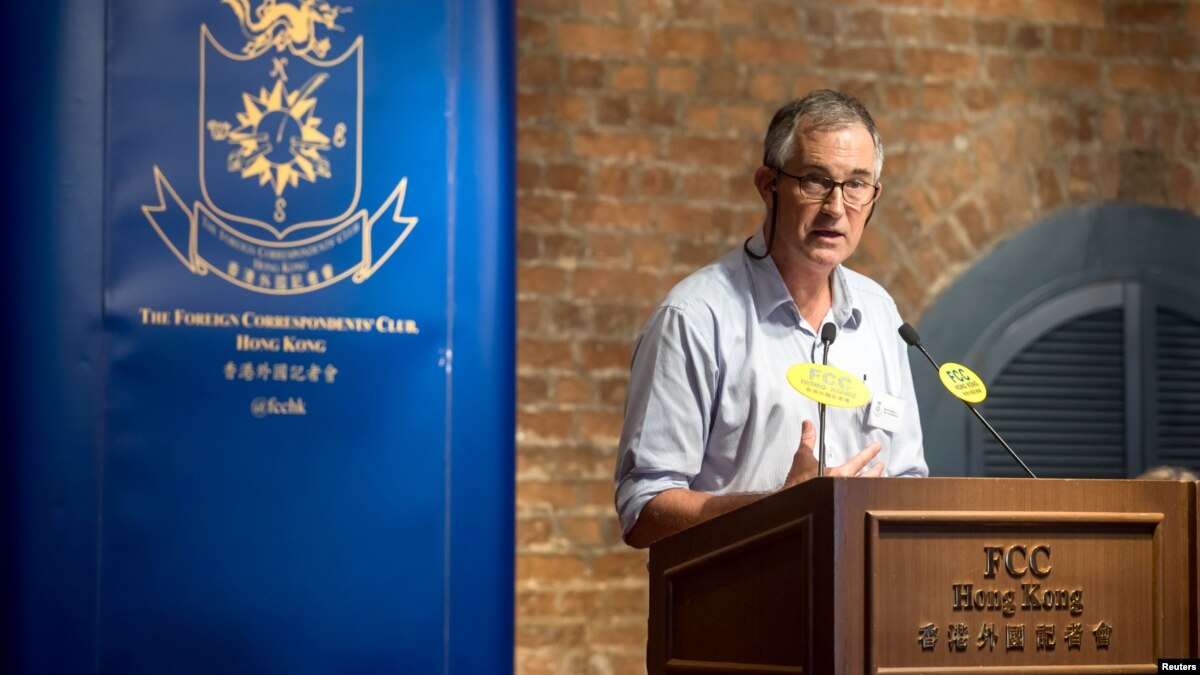
Last year marked a "significant deterioration" in reporting conditions for foreign journalists in China, the Foreign Correspondents' Club of China said on Tuesday, with no reporter saying in a new survey that conditions had improved last year.
The group said 55 percent of respondents to its 2018 reporting conditions survey said they believed conditions deteriorated last year, the largest proportion since 2011.
"Not a single correspondent said conditions improved last year," the group said, unveiling results of a survey of its 204 foreign correspondent members, 109 of whom responded to questions.
"Rapidly expanding surveillance and widespread government interference against reporting in the country's far northwestern region of Xinjiang drove a significant deterioration in the work environment for foreign journalists in China in 2018."
China's Foreign Ministry did not immediately respond to a request for comment on the survey results.
The government has repeatedly said it is committed to ensuring foreign media can report easily in China, but that they must follow Chinese rules and regulations.
According to rules issued just before the 2008 Beijing Olympics, China allows foreign reporters to interview anyone as long as they have permission.
But the government often interprets the rules to suit its needs, rights groups say, especially when it comes to sensitive subjects. Tibet remains off limits for foreign journalists apart from government-organized visits.
While foreign journalists are occasionally harassed or temporarily detained in China, domestic media operate under strict government controls. Chinese reporters have been fired or jailed for writing stories that stray too far from the government line.
Chinese President Xi Jinping has overseen a sweeping crackdown on dissent since assuming office six years ago and his administration has tightened Communist Party controls on all levels of society, including in Xinjiang.
Monday, January 28, 2019
US' Mnuchin Expects Progress in 'Complicated' China Trade Talks
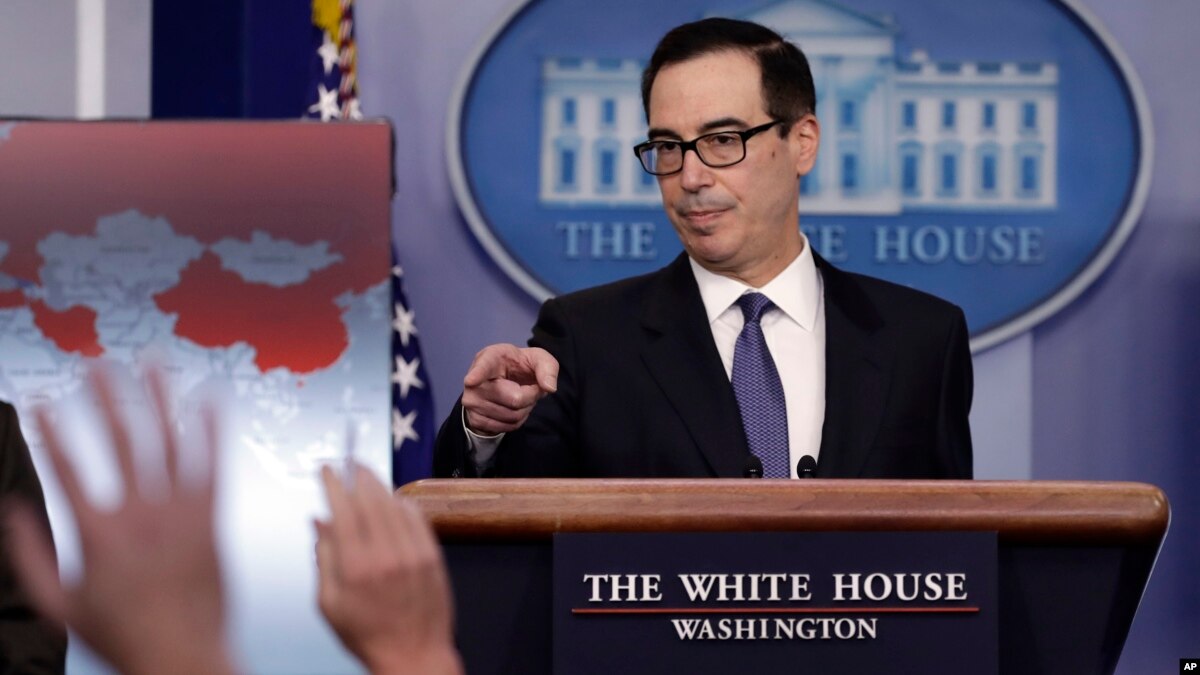
U.S. Treasury Secretary Steven Mnuchin said on Monday the United States expects significant progress this week in trade talks with Chinese Vice Premier Liu He, but the two sides will be tackling "complicated issues", including how to enforce any deal.
The talks, scheduled for Wednesday and Thursday in Washington, will include a meeting between Liu and U.S. President Donald Trump and take place amid worsening tensions between the world's two largest economies.
The U.S. Justice Department on Monday unsealed indictments against China's top telecommunications equipment maker, Huawei Technologies Co., accusing it of bank and wire fraud to evade Iran sanctions and conspiring to steal trade secrets from T-Mobile US Inc.
China, meanwhile, formally challenged U.S. tariffs on Chinese goods in the World Trade Organization's dispute settlement system, calling the duties a "blatant breach" of Washington's WTO obligations.
U.S. Commerce Secretary Wilbur Ross insisted at a news conference that the Huawei indictments are "law enforcement actions and are wholly separate from our trade negotiations with China."
The Huawei indictment came as a Chinese delegation including Liu and Vice Commerce Minister Wang Shouwen was already in Washington preparing for the talks, a person familiar with the discussions said.
Mnuchin, speaking at a White House news conference, said the two sides were trying to tackle "complicated issues," including a way to verify enforcement of China's reform progress in any deal with Beijing.
The Treasury chief, who will be among the top U.S. officials at the negotiating table, said Chinese officials had acknowledged the need for such a verification mechanism.
"We want to make sure that when we get a deal, that deal will be enforced," Mnuchin said. "The details of how we do that are very complicated. That needs to be negotiated. But IP (intellectual property) protection, no more forced joint ventures, and enforcement are three of the most important issues on the agenda."
Reuters reported earlier this month that U.S. officials were demanding regular reviews of China's progress on pledged trade reforms, which would maintain the threat of tariffs long term.
Mnuchin added that there had been "significant movement" in the talks so far, and there will be around 30 days for further negotiations after the meetings in Washington on Wednesday and Thursday to reach an agreement before a March 2 deadline for increasing U.S. tariffs on Chinese goods.
Mounting concerns for both countries, including China's slowing economy and Trump's need for a political win, could prod both sides towards a "partial, interim deal," said Eswar Prasad, a Cornell University trade professor and former head of the International Monetary Fund's China department.
"There remains a vast distance separating the negotiating positions of the two sides, making a comprehensive and durable deal unlikely," Prasad said.
China is unlikely to give much ground on industrial policy and state support for industries, but it could promise to improve intellectual property protections and enforcement.
However, persuading U.S. negotiators that these can be verified will be a "hard sell," Prasad added.
The White House said that U.S. Trade Representative Robert Lighthizer would lead the talks for the American side, with participation from Mnuchin, Commerce Secretary Wilbur Ross, White House economic adviser Larry Kudlow and White House trade and manufacturing adviser Peter Navarro.
It said the meetings will take place in the Eisenhower Executive Office Building, part of the White House complex.
Who is Meng Wanzhou?
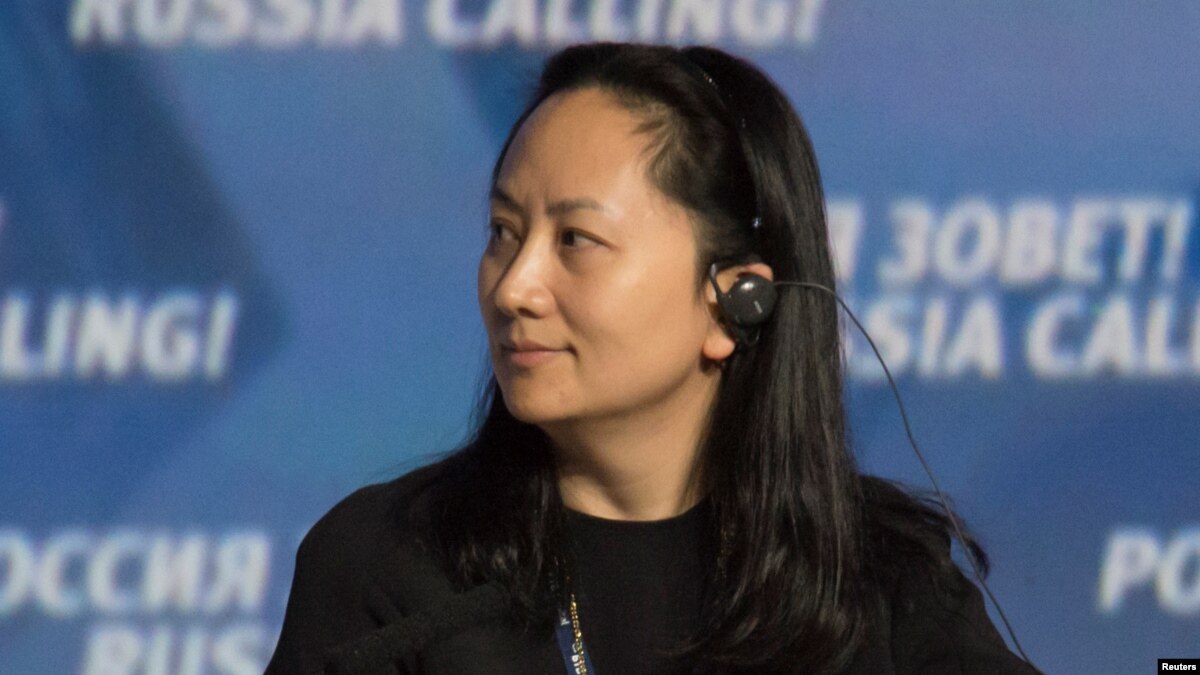
Meng Wanzhou, the Chief Financial Officer of the Chinese tech giant Huawei, was arrested in Canada last month and is fighting extradition to the United States. We take a look who she is and what is behind her arrest.
Who is she?
Meng Wanzhou is the 46-year-old daughter of Huawei's billionaire founder, Ren Zhangfe. Also known as Sabrina Meng, she took her last name from her mother. She was born in 1972 in Chengdu. When she was about 10, her family moved south to the city of Shenzhen, which is now the headquarters of Huawei, China's largest private company. She is married and has four children.
Career at Huawei
Meng joined her father's firm after she graduated from Huazhong University of Science and Technology in 1999 with a master's in accounting. Her first job was answering phones in the finance department, just six years after Huawei was founded.
As Huawei has grown into China's largest smartphone and telecommunications equipment maker, Meng rose through the ranks to become the company's CFO in 2011. She was also named one of four vice-chairs on the Huawei board of directors in 2018, sparking speculation that she was being groomed to one day take over the company. Her father has denied having any such plan.
Huawei, which was founded in 1987, only began to make public the names of its top executives in 2011, according to Reuters. By then, Meng was already a CFO. According to the bio released by the company, she has been involved in a number of Huawei restructuring moves, including centralizing and improving its finance and accounting departments as the company expanded.
In 2018, Forbes magazines rated Meng 12th on its list of top Chinese businesswomen.
Why was she arrested?
Meng was arrested in Vancouver on Dec. 1. Prosecutors have charged that Meng tried to deceive international business entities by disavowing the links of Huawei to a subsidiary that has done business with China. Canadian prosecutors say that Meng assured U.S. banks that Huawei and a company called Skycom were separate entities, while in fact they were one firm. "Ms. Meng personally represented to those banks that Skycom and Huawei were separate, when in fact they were not separate," prosecutor John Gibb-Carsley said. "Skycom was Huawei." Gibb-Carsley said the warrant for Meng's arrest was issued Aug. 22 in New York.
Meng was released on bail and now lives in one of two homes she owns in Vancouver, where her activity is monitored through an ankle bracelet.
U.S.-China trade war
The White House has denied accusations that Meng's arrest was a way for the United States to gain leverage in trade talks with China. The U.S. has been investigating the world's largest smartphone maker since 2016, which it suspects of being a front for spying by the Chinese military or security services.
Thailand Suspends Patent Applications for Medical Marijuana
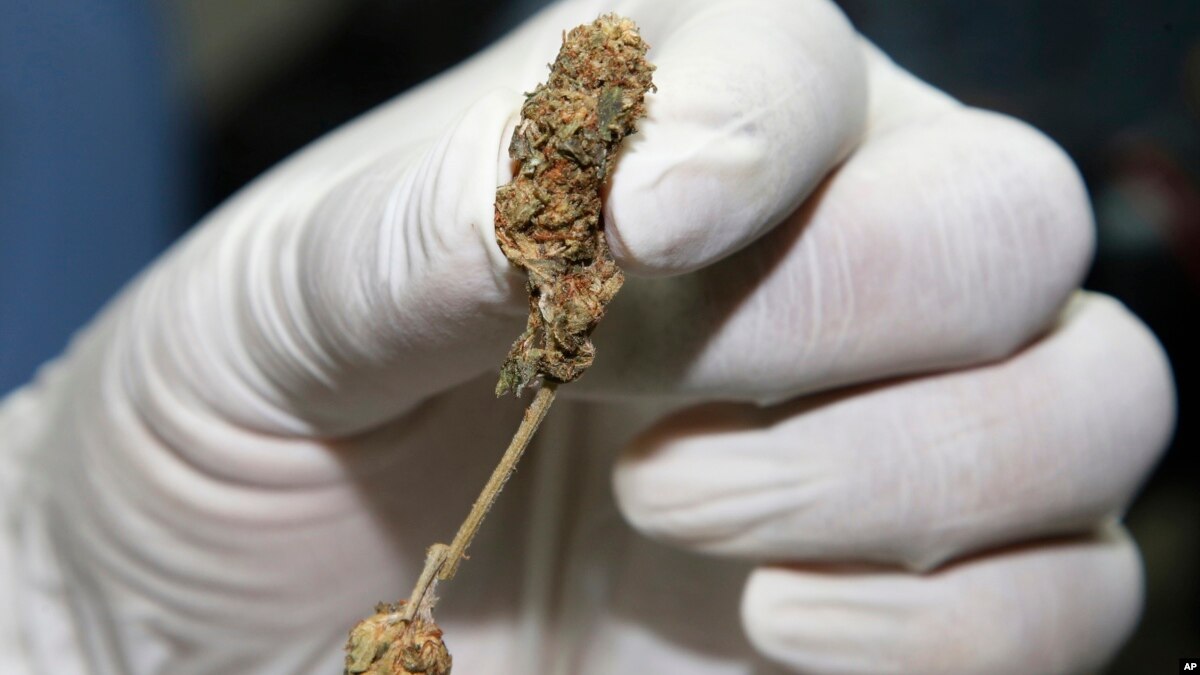
Thailand's military government on Monday suspended the licensing of commercial marijuana-based products for medical use amid concern that foreign pharmaceutical companies might try to monopolize the market.
Prime Minister Prayuth Chan-ocha's decree orders the director of the Department of Intellectual Property to invalidate all patent applications for medical marijuana products, declaring that for the time being commercial products from marijuana or having the same molecular structure as the plant are not supported under intellectual property laws.
The decree says it will remain in effect until legislation on medical marijuana comes into force. Parliament last month legalized the regulated use of medical marijuana but the legislation must be signed by King Maha Vajiralongkorn to become law. At that point, new applications are expected to be allowed that meet conditions specified under the law.
The order was issued under special powers the military government that seized power in 2014 gave itself to implement laws without approval from Parliament.
The move came in response to concerns that foreign companies could monopolize the medical marijuana industry, as some had already registered for patents to produce medical marijuana in Thailand, said Arun Max Avery, chief operating officer for Highland, a marijuana advocacy group.
Avery said foreign companies such as Britain's GW Pharmaceuticals and Japan's Otsuka Pharmaceutical had filed patents to produce medical marijuana and although their applications have not been approved, they have also not been rejected. Avery said the two companies had ``already established themselves in North America and Europe and now they're making their move in Thailand.''
Avery said part of the concern over the foreign companies' patent applications was that Thai intellectual property law does not allow natural microorganisms to be patented.
He said the move to sideline the patent applications and wait for the new law might result in conditions making it possible for more Thais to cultivate and consume medical marijuana.
On Dec. 25 last year, Thailand's legislature agreed to amend the country's drug law to allow the licensed medical use of marijuana, as well as kratom, a locally grown plant traditionally used as a stimulant and painkiller.
Singapore: American Leaked 14,200 Patient Health Records
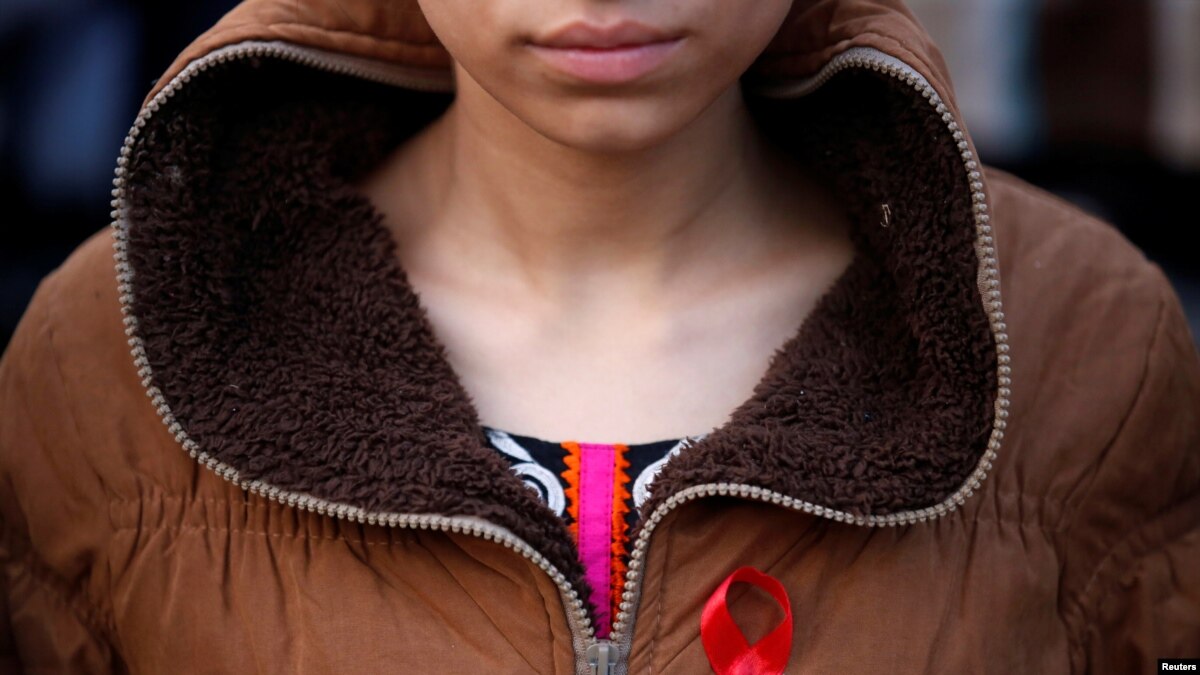
Confidential information of 14,200 people diagnosed with HIV in Singapore has been leaked, the city-state's government said Monday.
In a statement posted on their website, Singapore's Ministry of Health said that information about 5,400 Singaporeans and 8,800 foreigners diagnosed with HIV, the virus that causes AIDS, has been leaked online by an American with a previous record of fraud.
"While access to the confidential information has been disabled, it is still in the possession of the unauthorized person, and could still be publicly disclosed in the future. We are working with relevant parties to scan the Internet for signs of further disclosure of the information," the statement read.
The health ministry named the suspect behind the leak as U.S. citizen Mikhy K. Farrera Brochez, who was living in Singapore on an employment pass before he was deported after finishing a jail sentence for fraud last year.
Brochez was a partner of Ler Teck Siang, a Singaporean doctor who has been charged under the Official Secrets Act for failing to adequately secure confidential information of HIV-positive patients. The charge is currently pending before the courts.
The health ministry was notified last week by police that confidential information from the HIV registry was disclosed.
No End in Sight for Radar Dispute Between Seoul and Tokyo
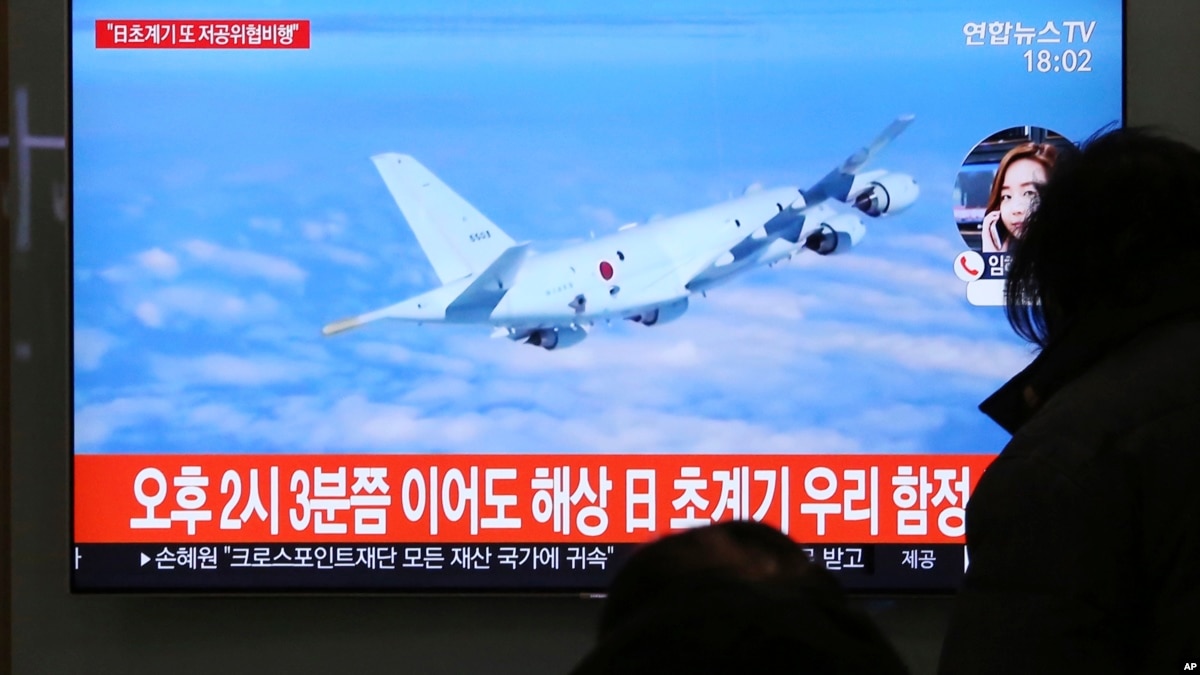
Seoul has accused Tokyo of repeated low-altitude, “provocative” flights over its naval vessels. It’s something the Japanese government denies and the two sides have been going back and forth publicly for over a month disputing one another’s accounts as bilateral relations sink.
Shim Jae-ok, a Professor at the Department of Aviation at Sehan University and a former Navy pilot, tells VOA these types of incidents do happen from time to time and “usually two sides are willing to sort out through working-level talks as an alliance.”
“However, this time Japanese politicians, including Prime Minister [Shinzo] Abe and the Minister of Defence extraordinarily mentioned it to the public,” said Shim.
Grant Newsham, Senior Research Fellow with the Japan Forum for Strategic Studies in Tokyo, suspects the reason for the Abe and the Japanese government to take this latest dispute public was that the senior level of government had “enough” from South Korea, especially with the latest court rulings ordering Japanese companies to compensate forced laborers from World War Two.
However, he said what is often overlooked is that the South Korean and Japanese militaries have a fairly good track record of working together throughout the years.
Newsham said, “The real sort of problem here is at the top levels, not so much at the military to military level.”
Conflicting stories
In late December, South Korean naval vessels were responding to distress signals sent by a North Korean fishing vessel that was drifting into international waters in the waters between the two countries.
Japan claims its Maritime Self Defense Force P-1 aircraft was targeted with fire control radar from the South Korean warship Gwanggaeto and felt threatened. However, South Korea said they felt threatened because of the track and low altitude of the Japanese craft.
Since the initial incident, South Korea has reported a least three other incidents where it says Japanese aircraft approached its vessels at a height of 60-70 meters, rather than the standard 150 meters. Seoul characterized these flights as “provocative” acts.
Shim, who flew naval aircraft for 30 years, said 150 meters is their standard limit to determine what is a threatening flight by an approaching aircraft.
“However,” he said, “looking at the path of the Japanese aircraft, it carried out ‘rigging.’”
That’s an operational term for aircraft carrying out surveillance flights or flying in such a way that threatens a hostile force.
“Modern aircraft are equipped with technology to observe [targets] from a distance and it is rare to do reconnaissance flight with rigging,” he said.
Because of this, Shim said the only time an aircraft would want to make itself visible to another force, would be to carry out the practice of rigging.
“So that’s why the Korean military called the flights threatening,” Shim said.
Ending the row
Last week South Korean Foreign Minister Kang Kyung-wha met with Japanese Foreign Minister Taro Kono on the sidelines of the World Economic Forum Annual Meeting in Davos, Switzerland to address the issue.
Japan had hoped to use the meeting to seek out a remedy to end the rift, but Kang was quoted as saying the incidents were “very annoying” and “regrettable” as the session was getting underway.
Kono responded by saying Seoul’s announcement of additional alleged low altitude flights was “regrettable” and denied that Japanese planes conducted low-altitude flights.
The head of South Korea’s Joint Chiefs of Staff’s operational headquarters, Suh Wook, said if Japan continues to carry out such maneuvers, “We will definitely take a strong action in line with our military’s code of conduct.”
Japan’s Kyodo news reported Tokyo is canceling a Japanese destroyer’s call to the South Korean port city of Busan over the continuing incidents.
Seoul says it hasn’t received any official updates from Japan about the vessel canceling its participation in joint exercises.
In addition, the commander of the South Korean Navy's First Fleet has called off a planned trip to Japan next month.
Keeho Yang, a professor in the Department of Japanese studies at Sungkonghoe University, believes the issues between the two militaries will pass relatively soon.
“[South Korea - Japan] security is important and they have a rule that keeps the two militaries cooperating. In addition, there’s the GSOMIA (General Security of Military Information Agreement), so there is no change in the basic principle [of how the two militaries are supposed to interact,” said Yang.
But Shim cautioned, “If the [South] Korean side continues to feel threatened, they need to make a responsive plan and that result in military conflict.”
He said that would be an extreme situation, but possible.
Newsham says it's easy to brush aside the current disagreements and assume they will "just blow over " and as time passes there will be other "things that take up people's time and attention."
But he says, "One shouldn't just dismiss or discount the South Korean resentment [in Japan] and just how there is a potential for these two nations to sort of shoot at each other. It's not unthinkable,” he said.
He said this could become an issue if the United States were to leave the Korean Peninsula.
Lee Ju-Hyun contributed to this report.
Read More No End in Sight for Radar Dispute Between Seoul and Tokyo : http://bit.ly/2CMAHegGrowing Chinese Navy Adds to Risk of Clashes in Asia’s Major Maritime Dispute
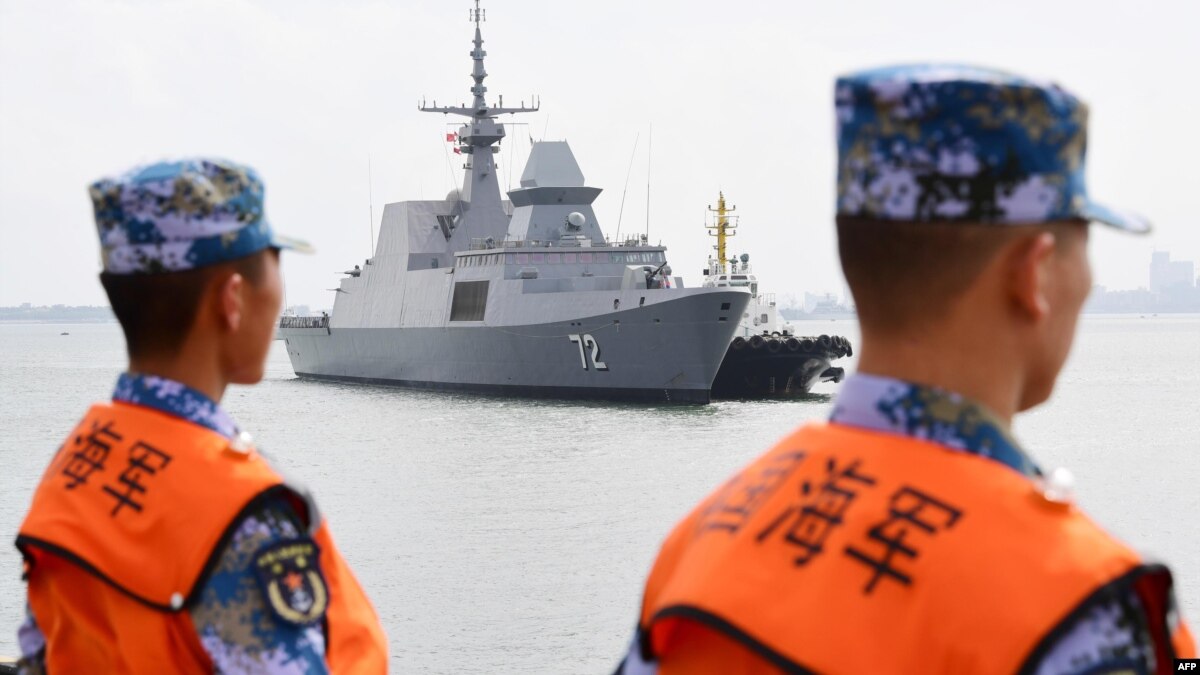
A Chinese missile frigate returned last week from a five-day, friendly visit to the Philippines -- days after a Chinese fleet had visited Cambodia and half a year after a Chinese state firm started taking bids to build a nuclear-powered aircraft carrier, a sign of Beijing’s growing power at sea.
Multiple media outlets last week cited a Chinese Xinhua News Agency report saying the People’s Liberation Army ground forces had dwindled to less than half China’s total 2.26 million troops as the number at sea grew.
This mounting evidence of Chinese naval expansion will show first in the South China Sea, experts say, upsetting five other governments that dispute Beijing’s maritime sovereignty claims, and challenging U.S. defense for the weaker states.
“I think it’s not a battle that anyone can hope to win against China except the United States, and even then at very high cost, so the issue is about trying to make clear that (China is) not intimidated from maintaining their existing claims,” said Euan Graham, international security director with the Lowy Institute for International Policy.
Strongest forces in Asia
Naval scholars in the West had forecast 10 years ago that a high-seas navy would become a key to China’s military modernization.
As of 2012, the Chinese navy had 512 ships, according to the British think tank International Institute of Strategic Studies. It now has 714 ships, the database Globalfirepower.com says. China also operated more than 710 naval aircraft in 2012, according to the British research and news organization Flightglobal Insight. The ArmedForces.eu website says is has 780 aircraft now.
Two years ago, Chinese President Xi Jinping signaled he was trying to bring the army under a central command to improve its coordination with the navy.
Any battlefront would more likely be at sea than on land, Graham said, and naval hardware normally reaches the South China Sea before anywhere else.
“The pattern for new equipment tends to be that they go to the South sea fleet first, so we could expect it’ll just be a continuation of the same trend where the fruits of naval modernization are concentrated in the South China Sea,” he said.
Pressure on Southeast Asia
Brunei, Malaysia, the Philippines, Taiwan and Vietnam contest all or some of China’s claims to about 90 percent of the fishery-rich, oil-laden South China Sea spanning 3.5 million square kilometers.
But they are all militarily weaker than China and might find it harder under a stronger Chinese navy to access small island outposts or prime fishing spots, maritime scholars say. China already lets its own fishing boats mass in disputed waters as a deterrent to other countries, Graham said.
“There’s not much they can do about this in the surrounding countries,” said Oh Ei Sun, senior fellow with the Singapore Institute of International Affairs. “We may just privately worry about it.”
China has alarmed the other claimants since 2010 by landfilling a series of tiny islets, some for military use.
China and the Southeast Asian countries are negotiating now a code of conduct to prevent mishaps, but the code, due in 2021, is expected to avoid anti-China language.
U.S. and outside powers
China worries most about the naval activities of outside powers, especially the United States, Japan and Australia. Those countries lack sovereignty claims to the sea but don’t want China to control it.
The U.S. Navy regularly sends ships to tell China that Washington considers the sea to be open for international use. Over the past half-decade, the United States and its allies have offered Southeast Asian countries military training as well as intelligence about China’s activities.
The U.S. Navy most recently sent a guided-missile destroyer January 7 to the sea’s Chinese-controlled Paracel Islands, which are contested by Taiwan and Vietnam.
“To me, the real target of the deterrents is really the United States and the other middle powers, like Japan, Australia and India,” said Sun Yun, East Asia Program senior associate at the Washington D.C.-based Stimson Center think tank. “Looking at the coastal line along the West Pacific, South China Sea is the only area where the U.S. and China are engaged in confrontational postures.”
Armed confrontation in the South China Sea between Beijing and one or more Southeast Asian states ranks as a “top tier” U.S. priority because of the sea’s volume of commercial shipping and the U.S. legal obligation to defend the Philippines as needed, the Council on Foreign Relations think tank says.
What happens in Sino-foreign maritime relations eventually comes down to numbers of new ships and personnel actually deployed in the sea, Oh said.
“An increase in the naval personnel has to be accompanied by an increase in equipment and various other military postures,” he said. “If they are building 10 more frigates and so on, maybe people will be surprised.”
Read More Growing Chinese Navy Adds to Risk of Clashes in Asia’s Major Maritime Dispute : http://bit.ly/2RYficESunday, January 27, 2019
Singer in Thai Girl Band Apologizes for Swastika Shirt

A popular Thai music act has apologized after one of its members wore a shirt showing the swastika flag of Nazi Germany during a performance.
The incident involving the girl group BNK48 occurred just two days ahead of International Holocaust Remembrance Day, marked Sunday with somber ceremonies in other parts of the world to remember the 6 million Jews and others killed in Adolf Hitler's death camps.
Israel's embassy in Thailand posted a statement on Twitter expressing "shock and dismay over the Nazi outfit worn by the singer.''
"Presenting Nazi symbols by the band's singer, hurt the feelings of millions around the world, whose relatives were murdered by the Nazis,'' it said.
The performer, 19-year-old Pichayapa 'Namsai' Natha, blamed her own ignorance for her actions as she delivered a tearful apology and asked for forgiveness. In the video apology made on the stage where the group usually performs, she dropped to her knees as she finished her brief statement and was comforted by fellow band members. Her apology was also posted on her Instagram account.
Management of the group, noted more for its marketing prowess than its musical abilities, also apologized that they had "inadvertently caused dismay and distress to people affected'' by the historical crime against humanity.
Incidents involving insensitive use of Nazi symbols occur from time to time in Thailand, where there is little awareness of the Holocaust and an inclination to use them as design elements or comic props.
Past scandals have involved bars, restaurants, motels and clothing using swastikas and images of Hitler for decorative purposes. But on several occasions students at schools and colleges have mimicked Nazi regalia and rituals, including the 'Heil, Hitler' salute, in skits, artworks and ceremonies.
Thais are not alone among the peoples of Asia with little knowledge or sensitivity about the Holocaust. In what may be a mark of disinterest in history among the younger generation, several other youth-oriented music groups have been involved in similar scandals.
Late last year, management for the South Korean hit K-pop boy band BTS apologized for one of its members wearing a T-shirt depicting the explosion of an atomic bomb and another a hat with a Nazi emblem in a magazine photo book. Band members previously flew flags with what appeared to be the Nazi swastika during a concert.
In 2016, the producer for a Japanese all-girl "idol'' group like BNK48 joined Sony Music in apologizing after the popular act performed in outfits resembling Nazi-era German military uniforms.
Keyakizaka46, a group of about 20 mostly teenage girls who sing and dance in synch, appeared at a concert in black knee-length dresses that look like military overcoats, and black capes and officer caps with a Nazi-like eagle emblem. Sony Music is the group's label.
Djokovic Dominates Nadal to Capture 7th Australian Open

Serbian tennis star Novak Djokovic has won his seventh Australian Open title, defeating Spain's Rafael Nadal in straight sets, 6-3, 6-2, 6-3.
It was the third straight Grand Slam championship for the top seeded Djokovic, who has now won a total of 15 major titles.
"To be standing now here in front of you today and managing to win this title and three out of four Slams, this is amazing. I am speechless," an emotional Djokovic said after the match Sunday.
He needed a little over two hours to capture his latest title in a mistake free and dominant performance.
On the other side of the net, the number two seeded Nadal made nearly 30 unforced errors.
"Even if tonight was not my best day of course I had someone that played a lot better than me tonight," said Nadal.
The last time the two met in the finals in Melbourne, in 2012, Djokovic need nearly six hours to win the match.
With Sunday's win, Djokovic extended his win-loss record against his Spanish rival to 28-25.
Australia Demands Release of Author Detained in China
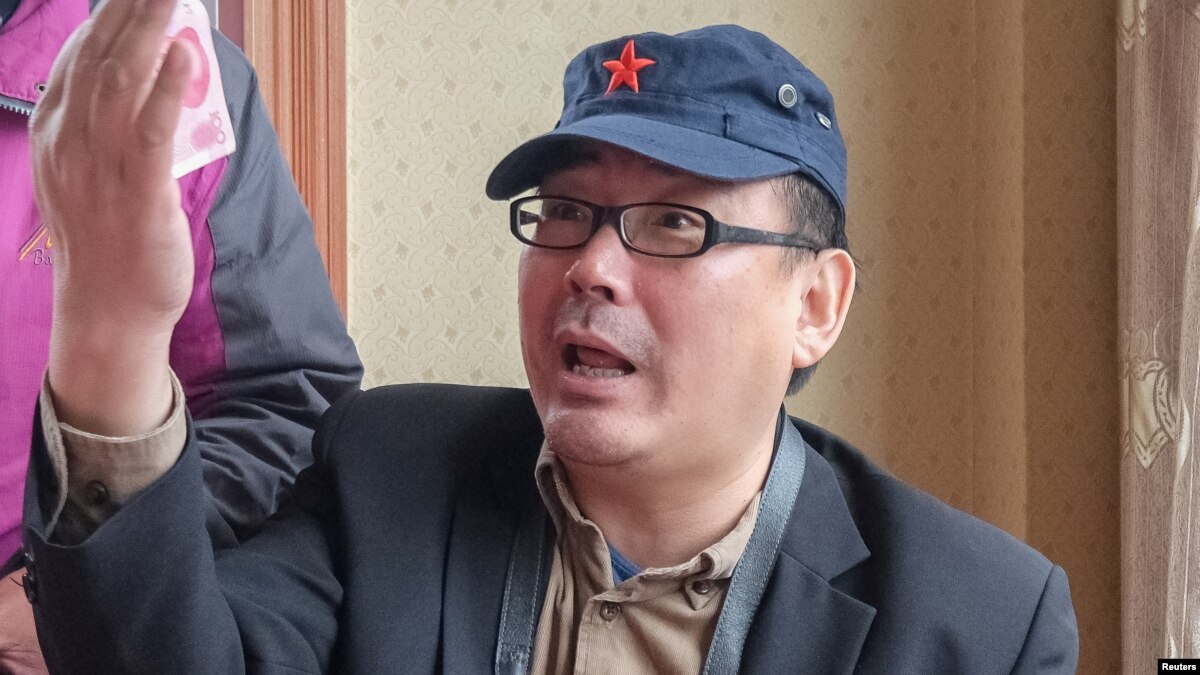
Beijing says it is investigating a Chinese-Australian writer for alleged “involvement in criminal activities endangering national security.” In Australia, a prominent government MP is demanding that author Yang Hengjun be freed immediately.
Yang was arrested a week ago after arriving in China from the United States, where he is a visiting scholar at Columbia University. Officials in Beijing say the Australian national is being questioned on suspicion of espionage.
He is being held in residential detention by Chinese state security. Previously dissidents held in similar conditions have been interrogated around the clock. Rights groups allege the process involves torture, a claim denied by China.
Defense minister's visit
Australia Defense Minister Christopher Pyne arrived Thursday in Beijing for unrelated talks.
Pyne said he would raise the case with his Chinese counterpart
“The Australian government is obviously concerned with the residential surveillance of Mr. Yang,” Pyne said. “He is an Australian citizen, and we are seeking to provide him with consular assistance and support to ensure that he is treated fairly and transparently, and I will be raising with General Wei that very requirement on behalf of the Australian government that he be given access to consular support.”
Australian diplomats were allowed to see the detained blogger and former diplomat a week after his arrest.
MP calls for release
In Australia, government MP Andrew Hastie has made a scathing assessment of China’s actions, insisting the detention of Yang was arbitrary and he called for his immediate release.
Analysts believe the arrest could be Beijing’s way of warning the Chinese diaspora not to openly talk about politics. Yang previously has been a critic of China’s Communist Party, but not in recent times.
For Australian officials, delicate diplomacy is needed. China is Australia’s biggest trading partner, but observers believe Canberra must manage carefully what has been a fractious relationship with the Chinese.
In December, Australia for the first time explicitly blamed China for cyber espionage and directly accused the Chinese state of approving a global campaign of the theft of trade secrets and confidential business information.
Saturday, January 26, 2019
Canadian Ambassador to China Fired Over Controversial Remarks
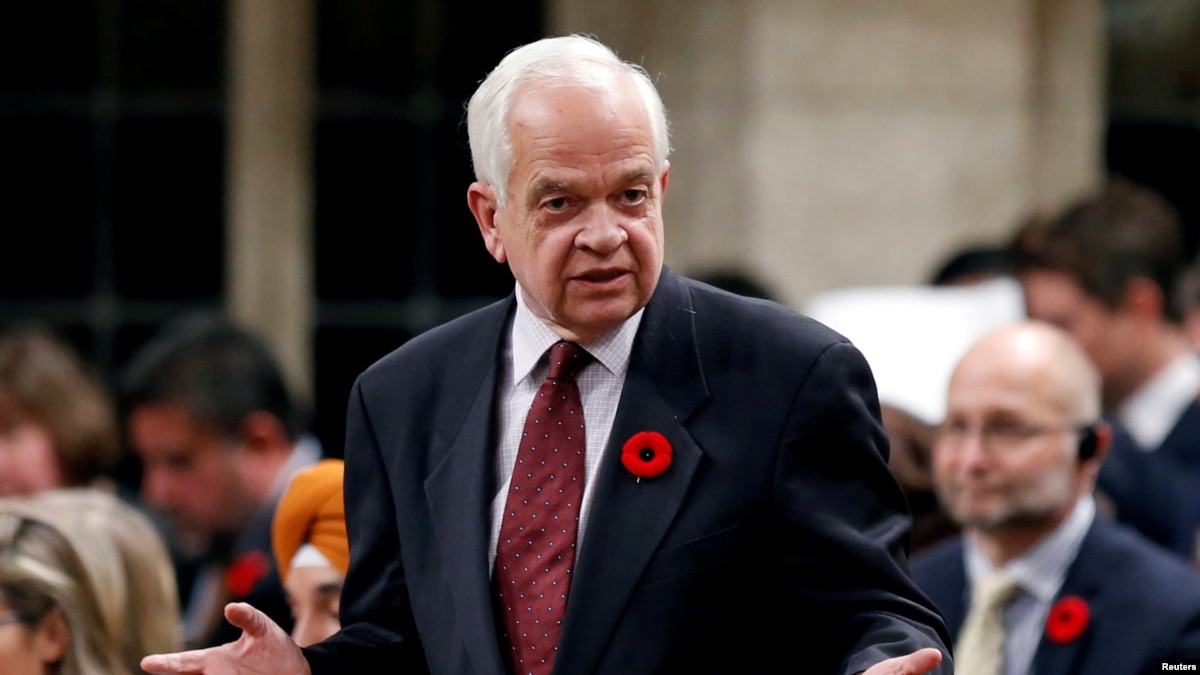
Canadian Prime Minister Justin Trudeau on Saturday fired his country's ambassador to China after a week of controversy over statements the ambassador made about extradition of a Chinese citizen to the United States.
Trudeau announced in a statement that he had asked for and accepted the resignation of John McCallum, without specifying the reason for McCallum's exit.
McCallum made headlines on Tuesday when he discussed the high-profile extradition case of Chinese citizen Meng Wanzhou, arrested in December in Vancouver, to the United States. He reportedly discussed several legal arguments Meng could use to fight extradition.
Two days later, he apologized for the remarks, saying he "misspoke" when he discussed that case. But on Friday, he reportedly added that it would be "great for Canada" if the United States dropped the case.
Meng is the chief financial officer of the Huawei telecom company and is accused of facilitating business deals that violated U.S. sanctions against Iran.
2 Canadians arrested
Soon after Meng's Dec. 1 arrest, China arrested two Canadian citizens on allegations they had endangered China's national security. Canada has called those arrests arbitrary.
Trudeau said earlier in the week that firing McCallum would not help the two Canadians in Chinese custody. But by Saturday, he had reversed his position.
Conservative leader Andrew Scheer tweeted criticism of the prime minister Saturday, saying Trudeau had waited too long and should have fired the ambassador "the moment he interfered in this case."
Friday, January 25, 2019
Once Drab Taiwan Villages Add Images of Rainbows, Giant Dogs, Fish

In Taiwan, many villages are nearly forgotten. Young people have left for work in the cities and local trades such as fishing have declined. But more than 90 of these villages got a makeover in the past decade. Artists have painted giant, colorful murals on the walls of old buildings or streets. Two villages are especially popular and attract tourists. Instead of gray houses, they're taking in rainbow-colored art, sharks and a poodle that licks people's hands. Ralph Jennings has this report.
Read More Once Drab Taiwan Villages Add Images of Rainbows, Giant Dogs, Fish : http://bit.ly/2UcmDSqJapan Upholds Sterilization Before Official Gender Change
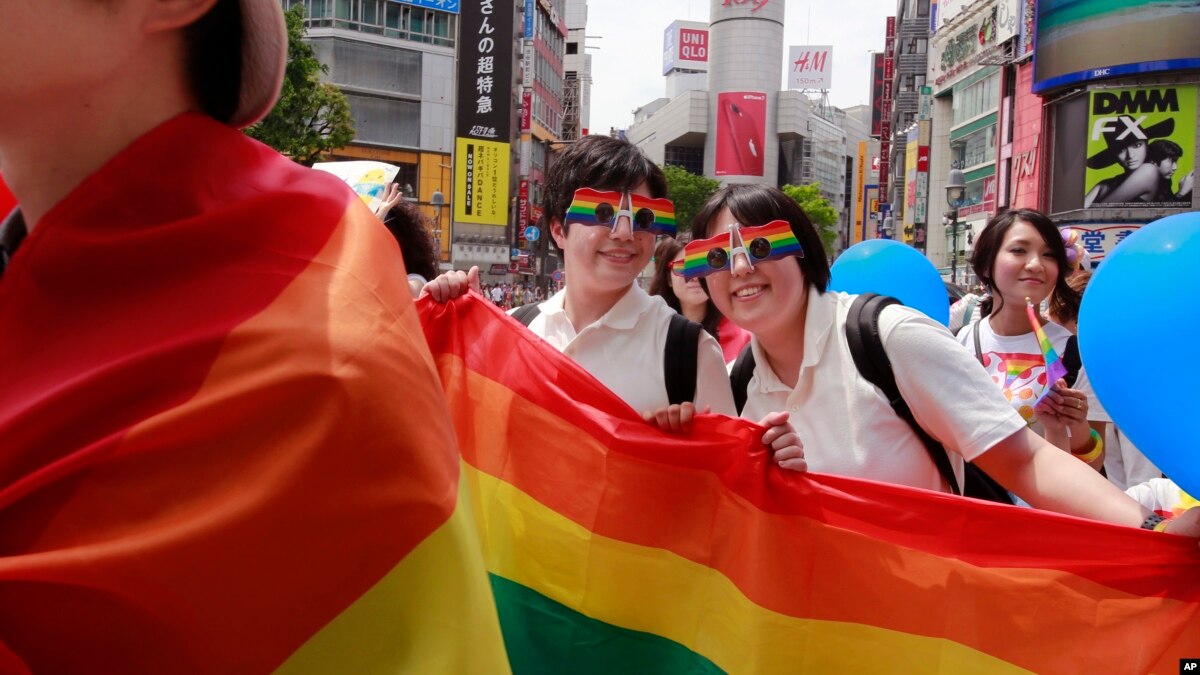
Human rights and LGBT activists Friday denounced a ruling by Japan’s Supreme Court upholding a law that effectively requires transgender people to be sterilized before they can have their gender changed on official documents.
The court said the law is constitutional because it was meant to reduce confusion in families and society. But it acknowledged that it restricts freedom and could become out of step with changing social values.
The 2004 law states that people wishing to register a gender change must have their original reproductive organs, including testes or ovaries, removed and have a body that “appears to have parts that resemble the genital organs” of the gender they want to register.
More than 7,800 Japanese have had their genders officially changed, according to Justice Ministry statistics cited by public broadcaster NHK.
Ruling leaves door open
The unanimous decision by a four-judge panel, published Thursday, rejected an appeal by Takakito Usui, a transgender man who said forced sterilization violates the right to self-determination and is unconstitutional.
Usui, 45, appealed to the top court after he unsuccessfully requested that lower courts grant him legal recognition as male without having his female reproductive glands surgically removed.
Despite the unanimous decision, presiding justice Mamoru Miura joined another justice in saying that while the law may not violate the constitution, “doubts are undeniably emerging,” according to Usui’s lawyer, Tomoyasu Oyama.
The two judges proposed regular reviews of the law and appropriate measures “from the viewpoint of respect for personality and individuality,” according to Japanese media reports.
Requirement in some other countries
Japan is one of many countries with a sterilization requirement. In 2017, the European Court of Human Rights said 22 of the countries under its jurisdiction still required sterilization as part of a legal gender change, and it ordered them to end the practice.
Maria Sjodin, deputy executive director of OutRight Action International, which monitors LGBT rights issues worldwide, said she was unsure if all 22 of those countries have fully implemented the court’s order. She noted that Sweden, which did away with the requirement in 2013, later became the first country to pay damages to anyone forced to undergo sterilization as a requirement for gender change.
The Japanese Supreme Court decision ends Usui’s legal battle, but he and his lawyer said the opinions in the ruling left them with hope.
“I think the ruling could lead to a next step,” Usui told a news conference.
Human Rights Watch said the Supreme Court ruling was “incompatible with international human rights standards, goes against the times and deviates far from best global practices.” The New York-based group said the ruling tolerates grave human rights violations against transgender people.
The ruling was also criticized by Japan’s LGBT community.
A transgender activist and writer, Tomato Hatakeno, tweeted that the decision shows that society’s interests still come before an individual’s right to freedom regarding one’s body.
“The ruling suggests that reproductive health is not recognized as a basic human right,” she said.
There is a growing awareness of sexual diversity in Japan, but it is often superficial and generally limited to the entertainment industry. In a country where pressure for conformity is strong, many gay people hide their sexuality even from their families because of a fear of prejudice at home, school or work. Obstacles remain high for transgender people.
Japan does not legally recognize same-sex marriages. As LGBT rights awareness has gradually grown in recent years, some municipalities have begun issuing partnership certificates to ease problems in renting apartments and other areas, but they are not legally binding.
Lawmakers in the conservative ruling party have repeatedly come under fire for making discriminatory remarks about LGBT people. Earlier this year, Katsuei Hirasawa, a veteran lawmaker, was widely criticized for saying that “a nation would collapse” if everyone became LGBT. Last year, another ruling party lawmaker, Mio Sugita, was condemned after saying in a magazine that the government shouldn’t use tax money for LGBT rights because same-sex couples aren’t “productive.”
Eugenics lawsuits
Separately, more than a dozen people with disabilities have filed lawsuits against Japan’s government for having been sterilized against their will under a 1948 Eugenics Protection Law that was in effect until 1996.
At least 16,500 people were sterilized without consent under the law, which allowed doctors to sterilize people with disabilities and was designed to “prevent the birth of poor-quality descendants.” Some orphans were also sterilized.
The government has maintained the sterilizations were legal.
Read More Japan Upholds Sterilization Before Official Gender Change : http://bit.ly/2HAzOeqReport Warns of N. Korea Nuclear Threat Ahead of Trump-Kim Summit
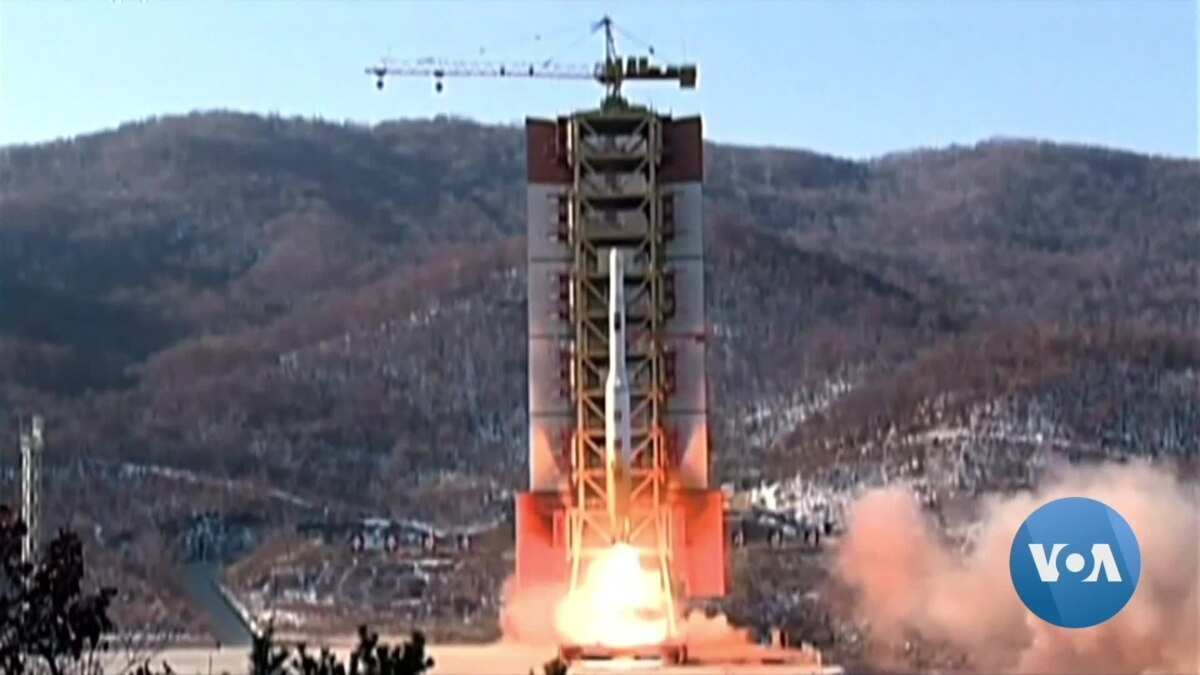
Two new reports came out this month highlighting the threat of North Korea's nuclear weapons program. Meanwhile the White House continues with plans to hold another summit between U-S- President Donald Trump and North Korean Leader Kim Jong Un. Experts warn that this summit must produce more substance than the first. White House Correspondent Patsy Widakuswara has more.
Read More Report Warns of N. Korea Nuclear Threat Ahead of Trump-Kim Summit : http://bit.ly/2S5pRtCAhead of Trump-Kim Summit, Reports Warn of North Korean Nuclear Threat

Two new reports came out this month highlighting the threat of North Korea's nuclear weapons program. Meanwhile the White House continues with plans to hold another summit between U.S. President Donald Trump and North Korean Leader Kim Jong Un. Experts warn that this summit must produce more substance than the first. White House correspondent Patsy Widakuswara has more.
Read More Ahead of Trump-Kim Summit, Reports Warn of North Korean Nuclear Threat : http://bit.ly/2CU7AG7Dozens Dead, Missing in Indonesia Floods, Landslides
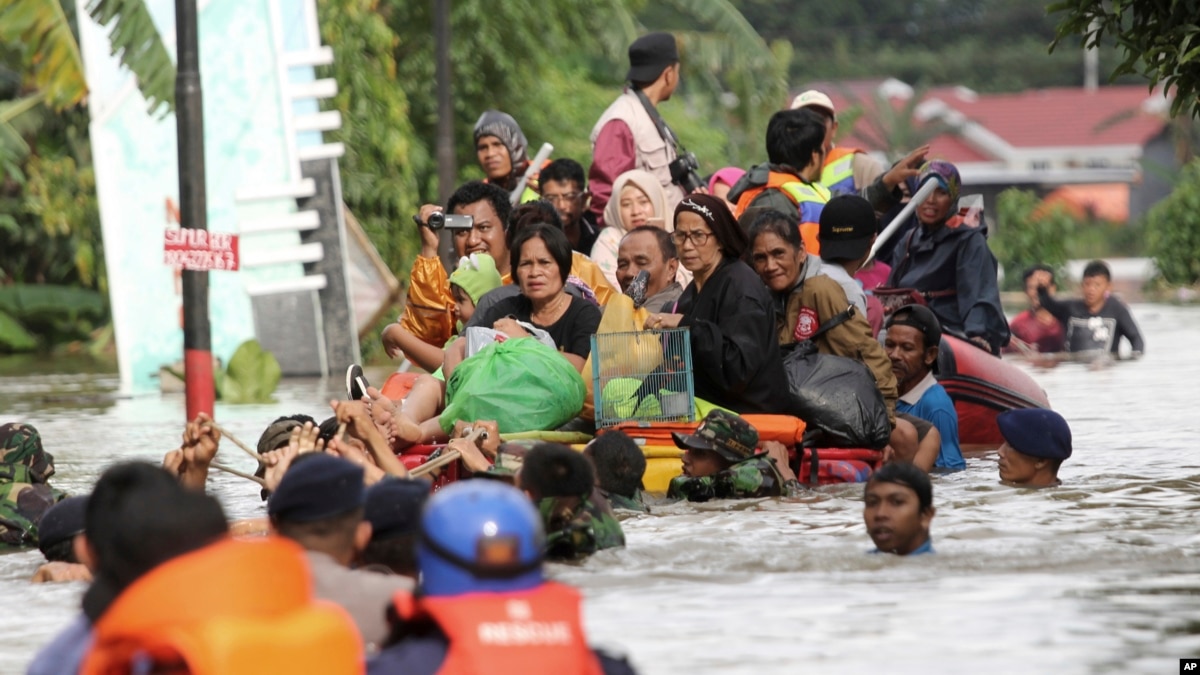
A disaster official says the number of people killed after days of torrential rain triggered flash floods and landslides on Indonesia’s Sulawesi island has climbed to 59 with 25 others missing.
Sutopo Purwo Nugroho, the National Disaster Mitigation Agency spokesman, says more bodies were recovered Friday as floodwaters and rainfall subsided in several areas.
Thirteen districts and cities in South Sulawesi province including the capital, Makassar, have been affected by flooding that began late Tuesday, forcing more than 3,000 people to flee their homes. Rescuers are still searching for 25 others.
Seasonal downpours cause frequent landslides and flash floods in Indonesia, a chain of 17,000 islands where millions live in mountainous areas or near fertile flood plains.
Thursday, January 24, 2019
Thai Election Date Set At Last
[unable to retrieve full-text content]
Almost five years after the military stormed to power in yet another coup, Thailand has finally announced an official election date. It comes in the wake of mounting defiance of the army's tight control. David Boyle has this report from Bangkok. Read More Thai Election Date Set At Last : http://bit.ly/2WeILNHMicrosoft’s Bing Blocked in China for Two Days

Chinese internet users lost access to Microsoft’s Bing search engine for two days, setting off grumbling about the ruling Communist Party’s increasingly tight online censorship.
Microsoft Corp. said Friday that access had been restored. A brief statement gave no reason for the disruption or other details.
Comments on social media had accused regulators of choking off access to information. Others complained they were forced to use Chinese search engines they say deliver poor results.
“Why can’t we choose what we want to use?” said a comment signed Aurelito on the Sina Weibo microblog service.
Government censorship
Bing complied with government censorship rules by excluding foreign websites that are blocked by Chinese filters from search results. But President Xi Jinping’s government has steadily tightened control over online activity.
The agency that enforces online censorship, the Cyberspace Administration of China, didn’t respond to questions sent by fax.
China has by far the biggest population of internet users, with some 800 million people online, according to government data.
Foreign sites blocked
The Communist Party encourages internet use for business and education but blocks access to foreign websites run by news organizations, human rights and Tibet activists and others deemed subversive.
Since coming to power in 2012, Xi has promoted the notion of “internet sovereignty,” or the right of Beijing and other governments to dictate what their publics can do and see online.
Chinese filters block access to global social media including Twitter, Facebook and YouTube. Officials argue such services operating beyond their control pose a threat to national security.
Xi’s government also has tightened controls on use of virtual private network technology that can evade its filters.
Alphabet Inc.’s Google unit operated a search engine in China until 2010 that excluded blocked sites from results. The company closed that after hacking attacks aimed at stealing Google’s source code and breaking into email accounts were traced to China.
That has helped Chinese competitors such as search engine Baidu.com to flourish. But Baidu has been hit by repeated complaints that too many search results are irrelevant or are paid advertising.
Search
Featured Post
Rubin Museum, Haven for Asian Art, to Close After 20 Years - The New York Times
It is the first major art museum in New York to close within recent memory. The museum had financial challenges and has faced accusations o...

Postingan Populer
-
asianpostmedia.blogspot.com Ex-CEO John Clendening slams his former employer for allegedly rewriting history to fend off attack from activi...
-
Merdeka.com - Tahun lalu, organisasi teroris ISIS yang menguasai sebagian wilayah di Suriah dan Irak berhasil digempur. ISIS kehilangan wi...
-
asianpostmedia.blogspot.com With restaurant closures and stay-at-home guidelines, you are likely cooking at home a lot more than you are us...